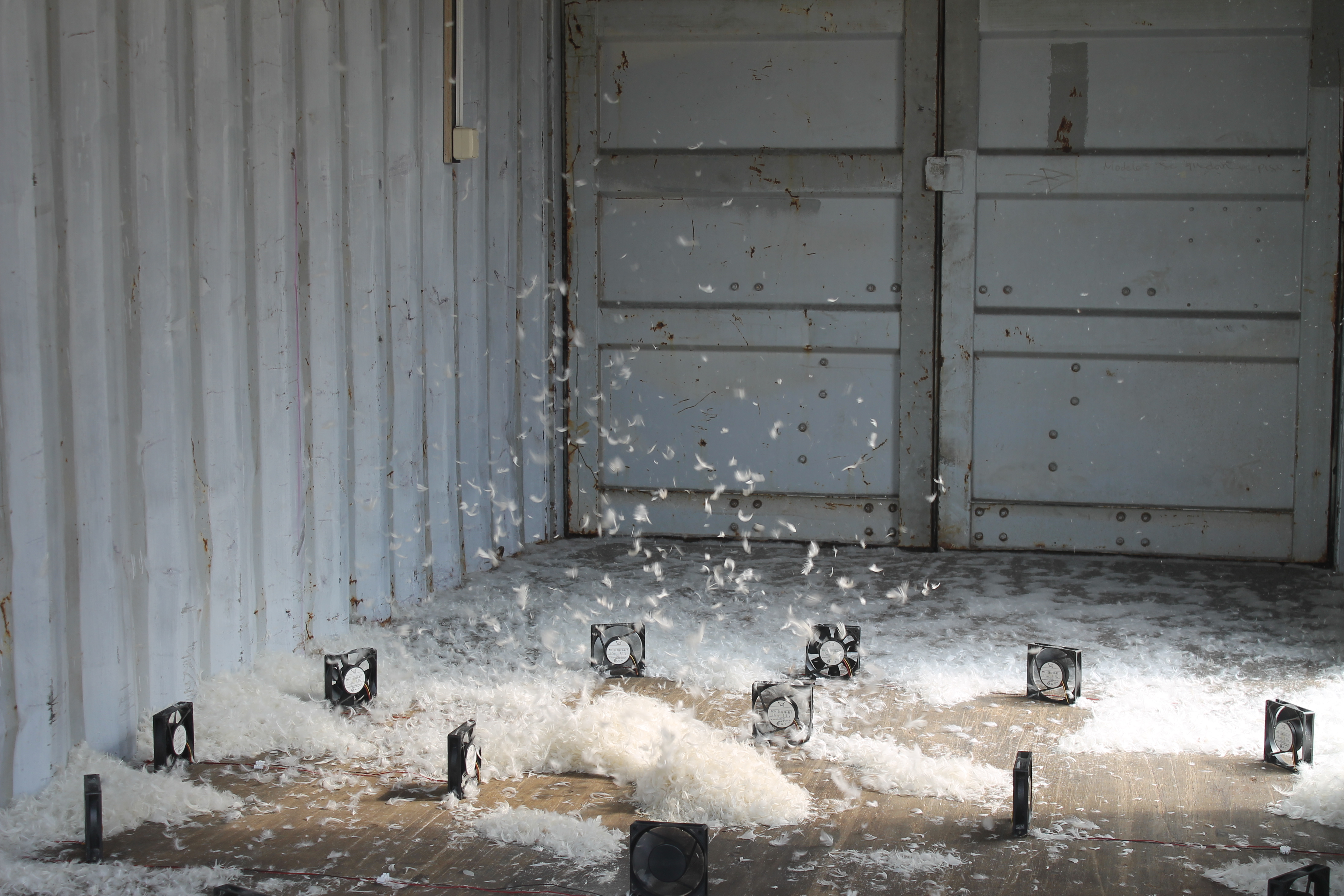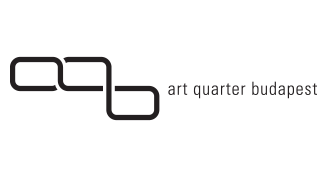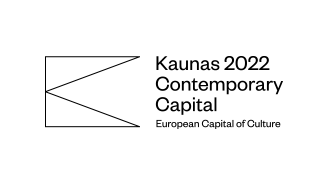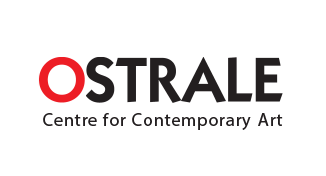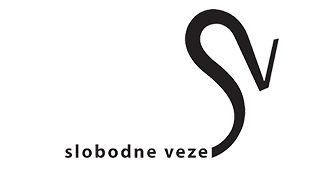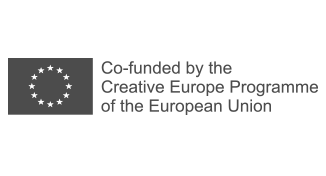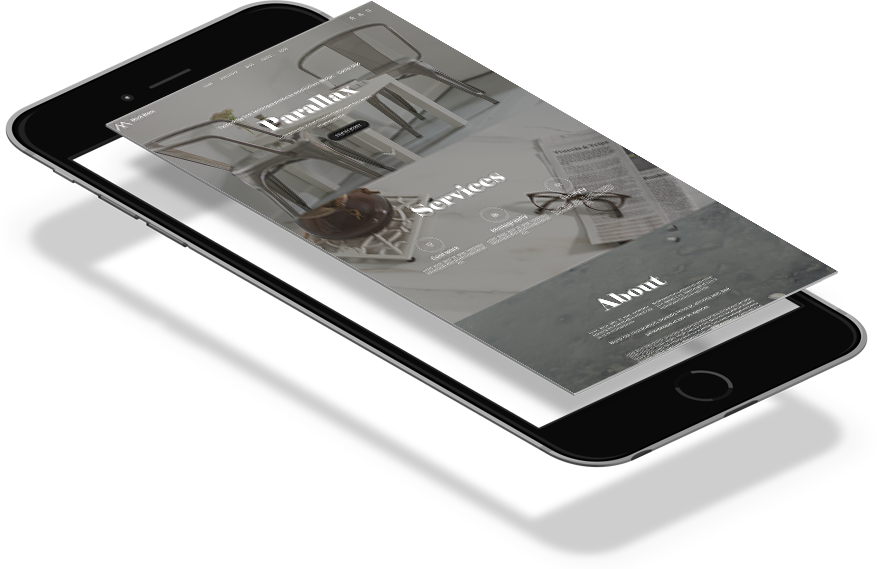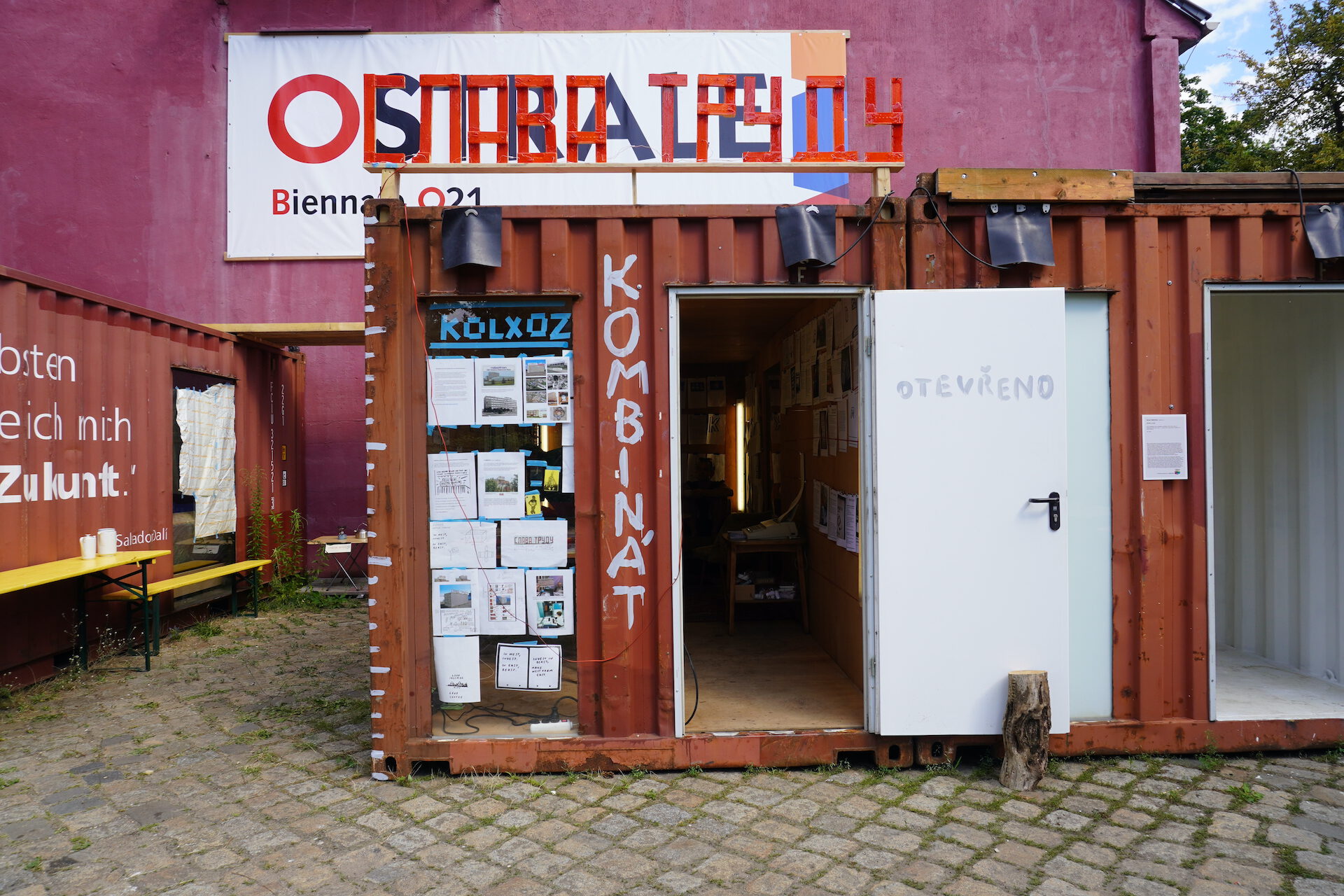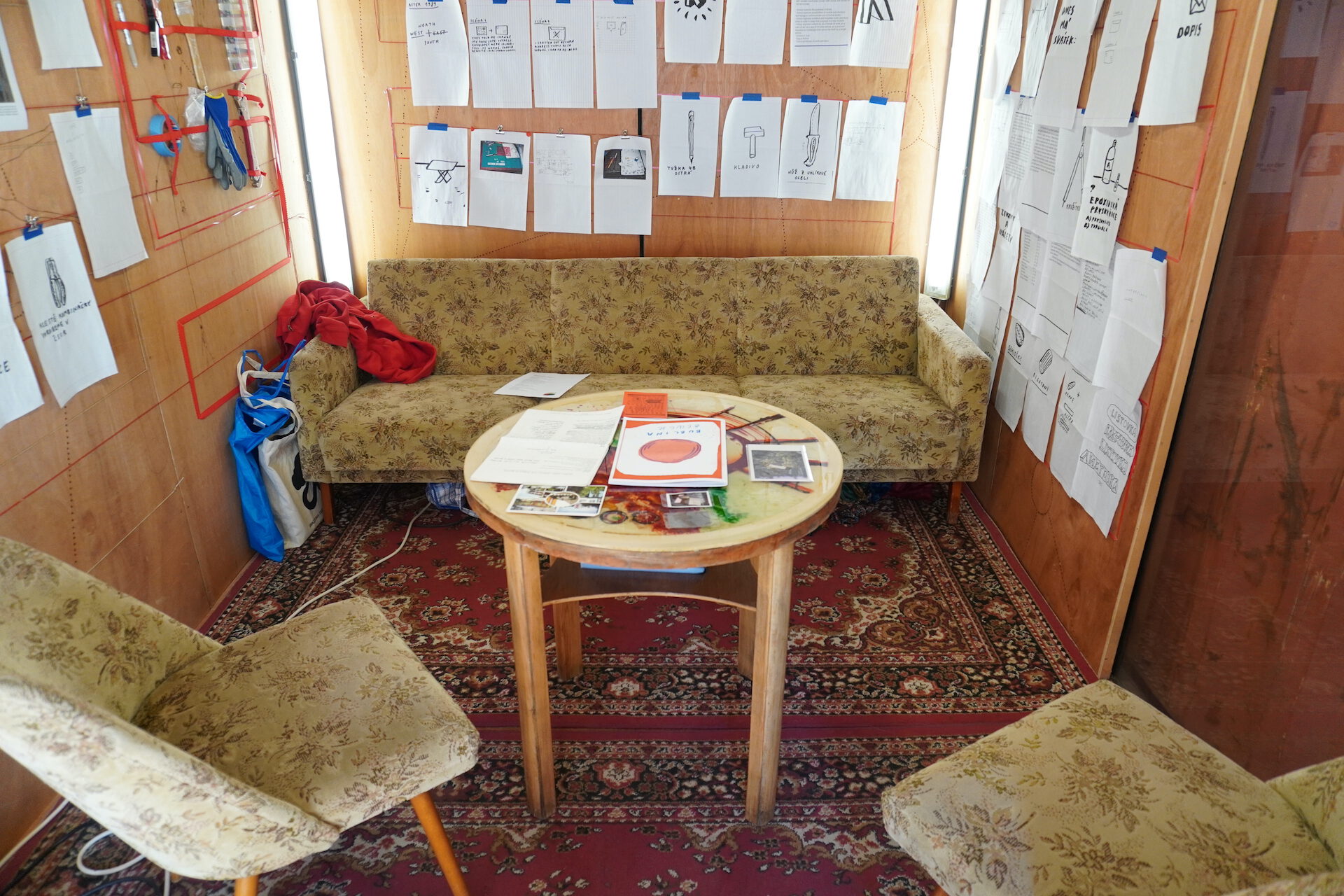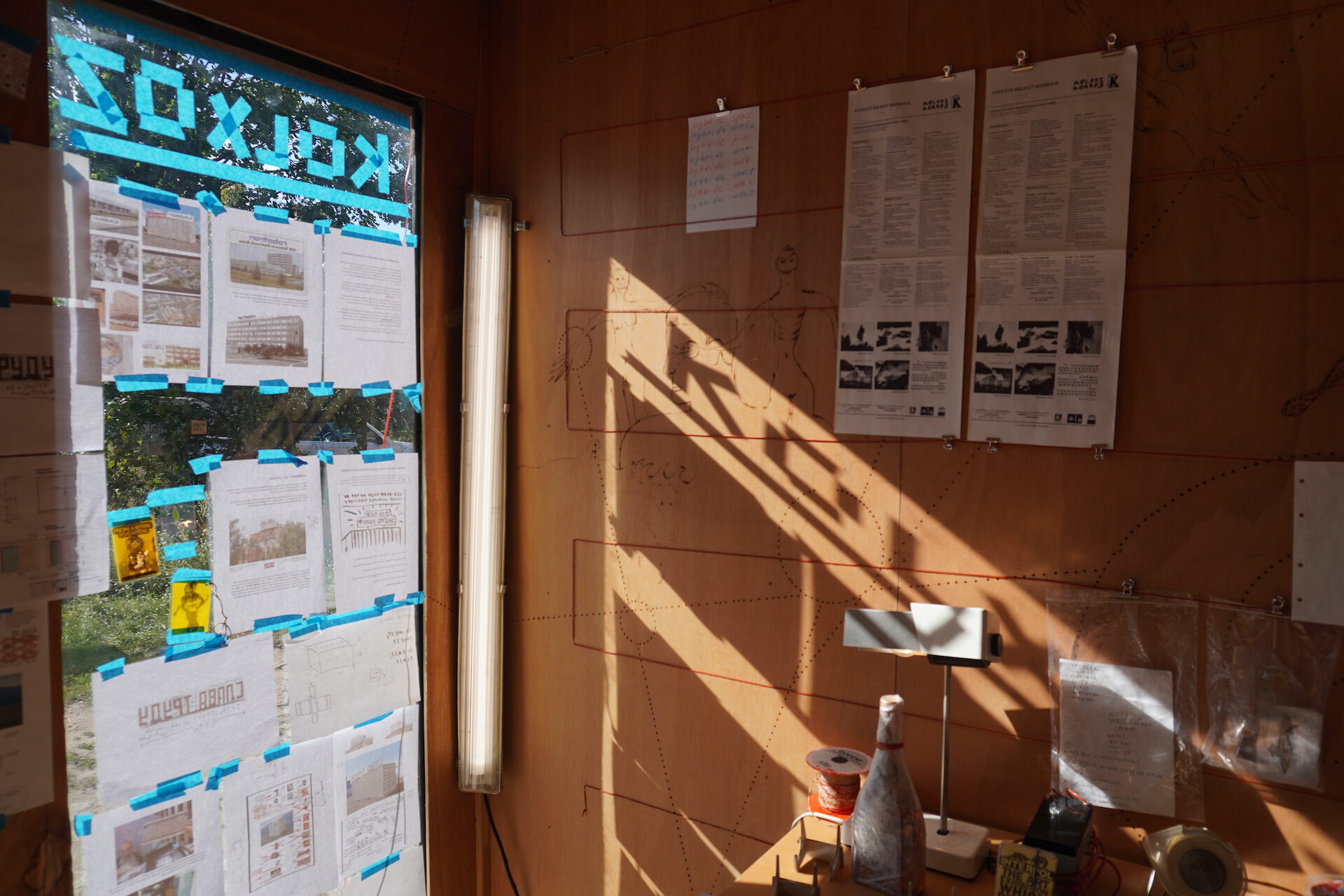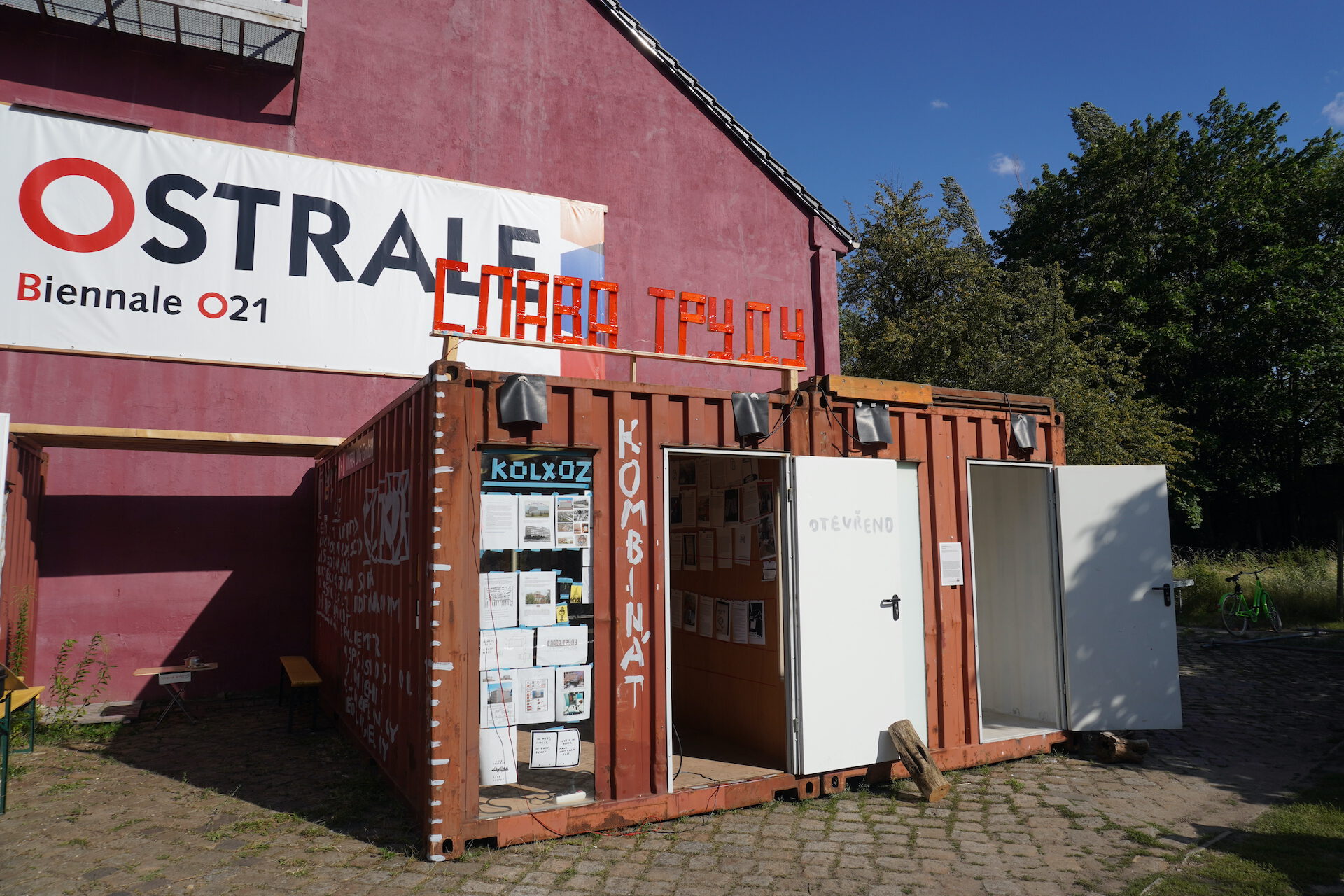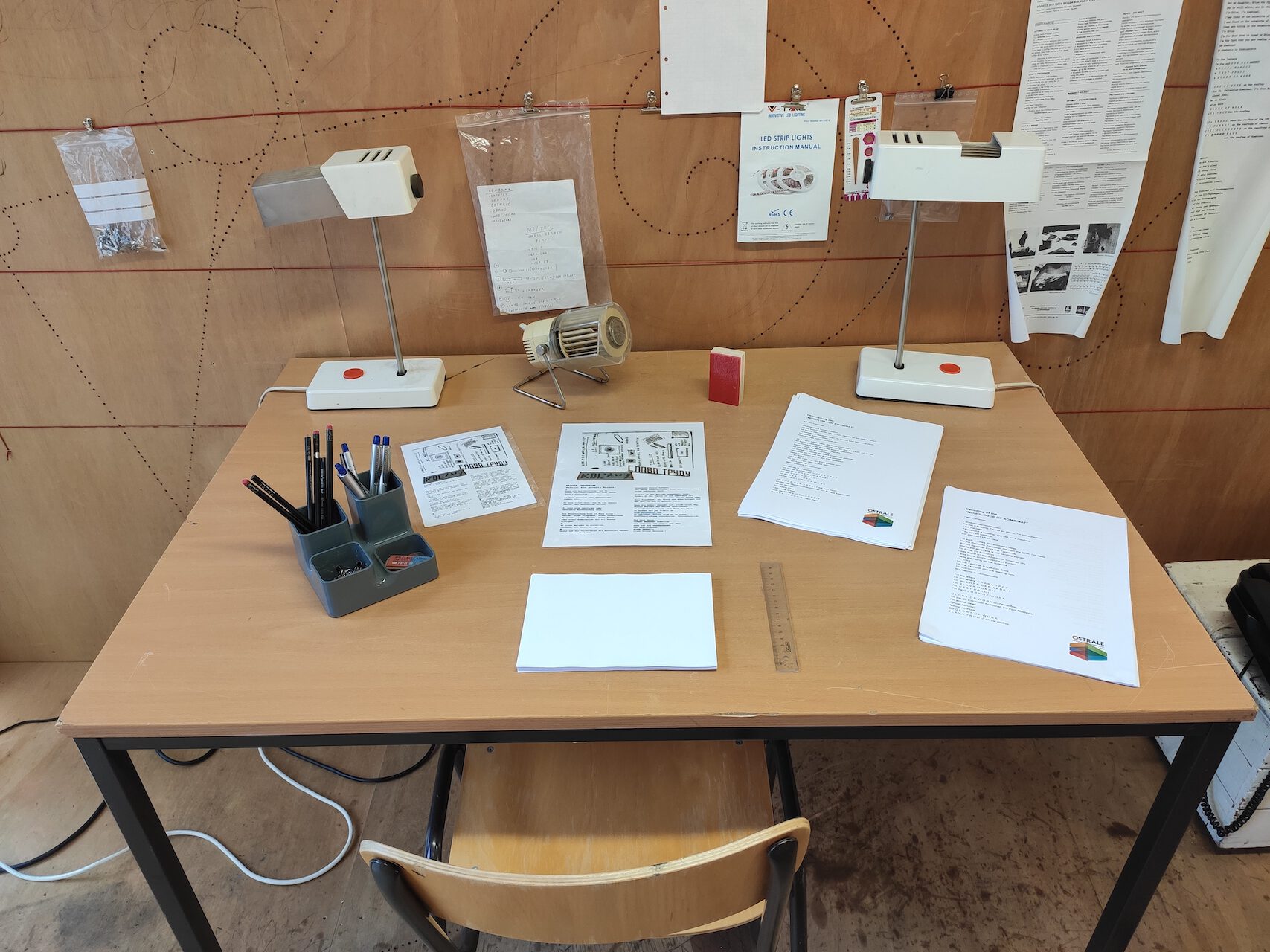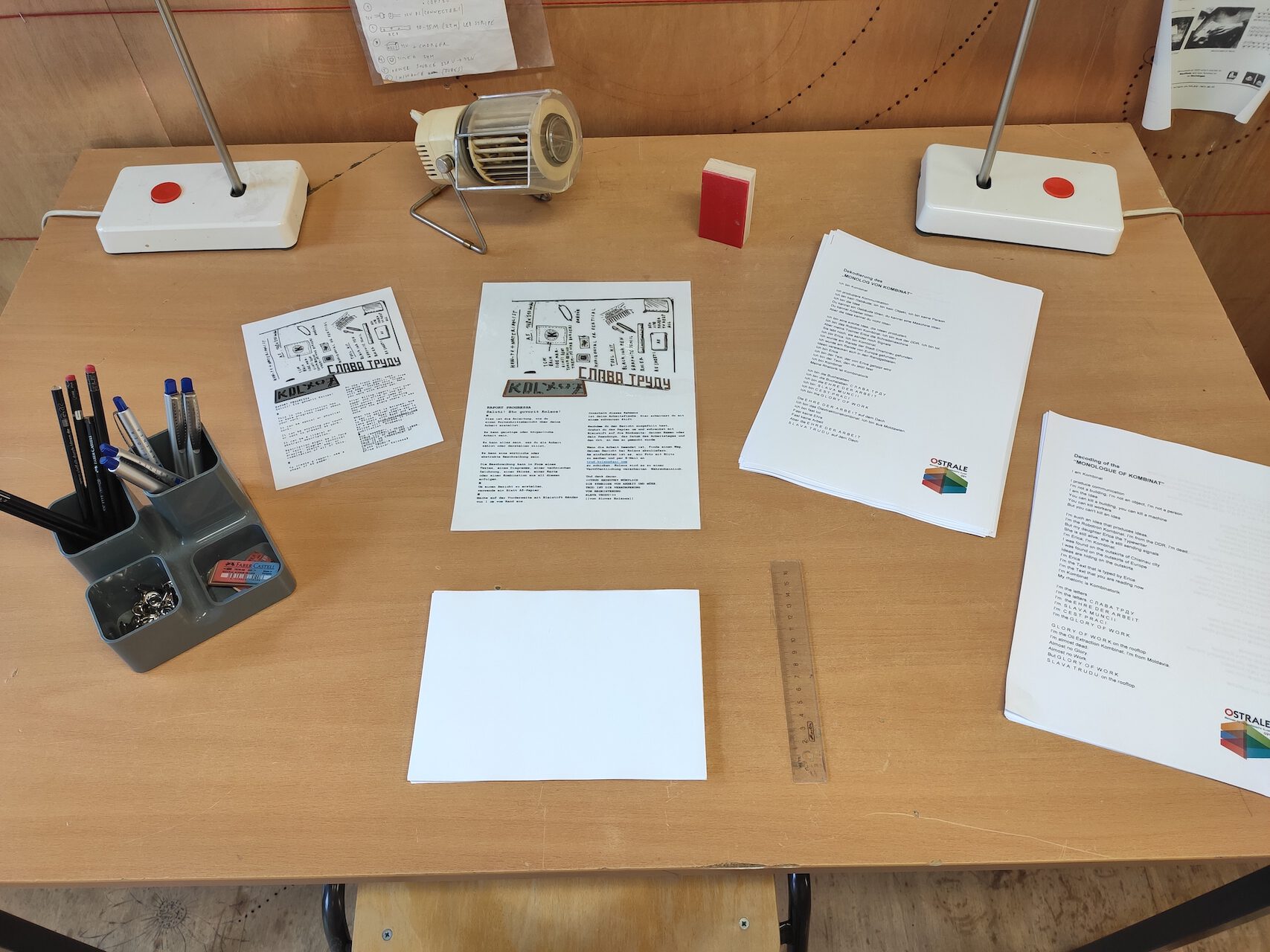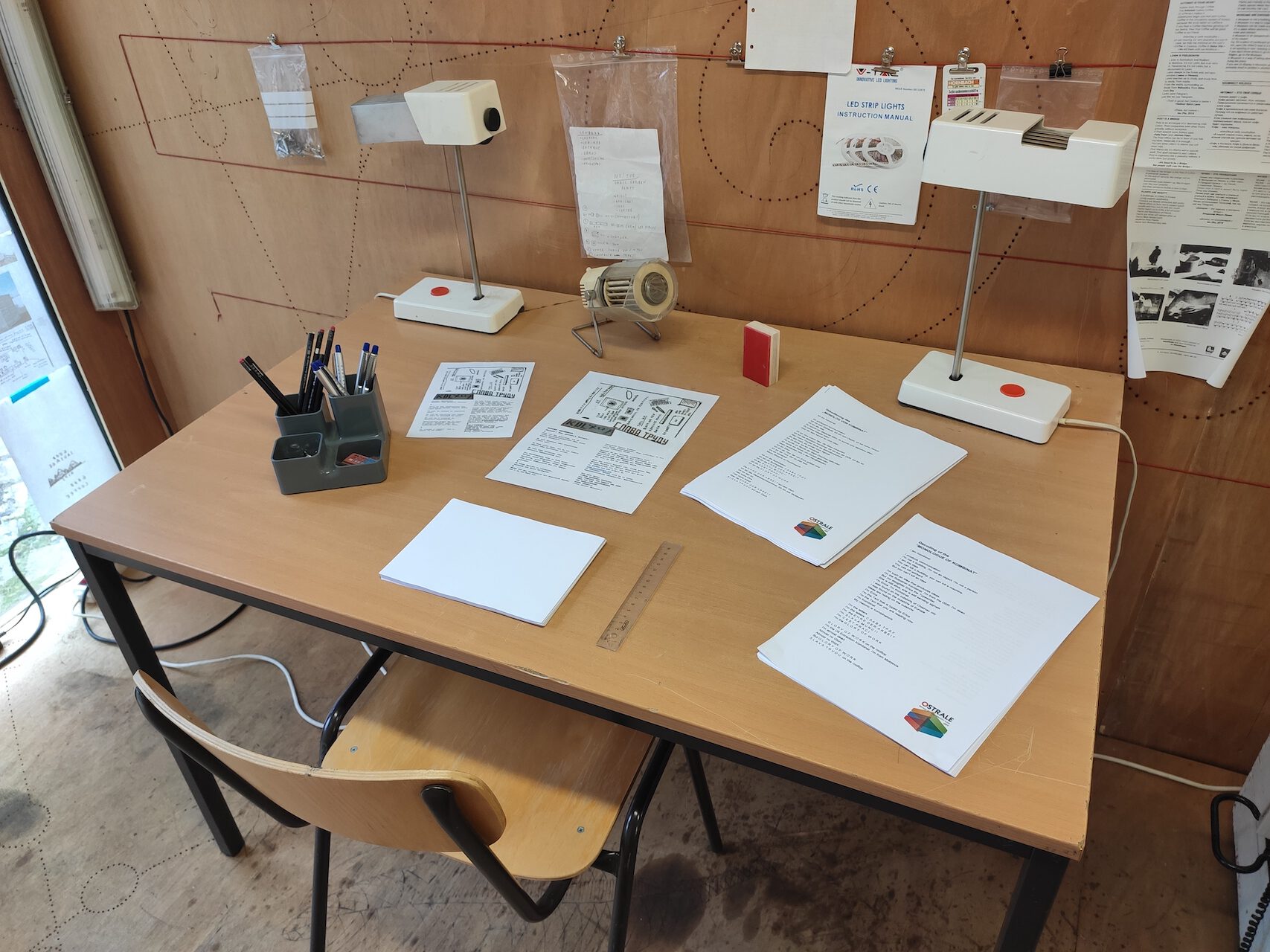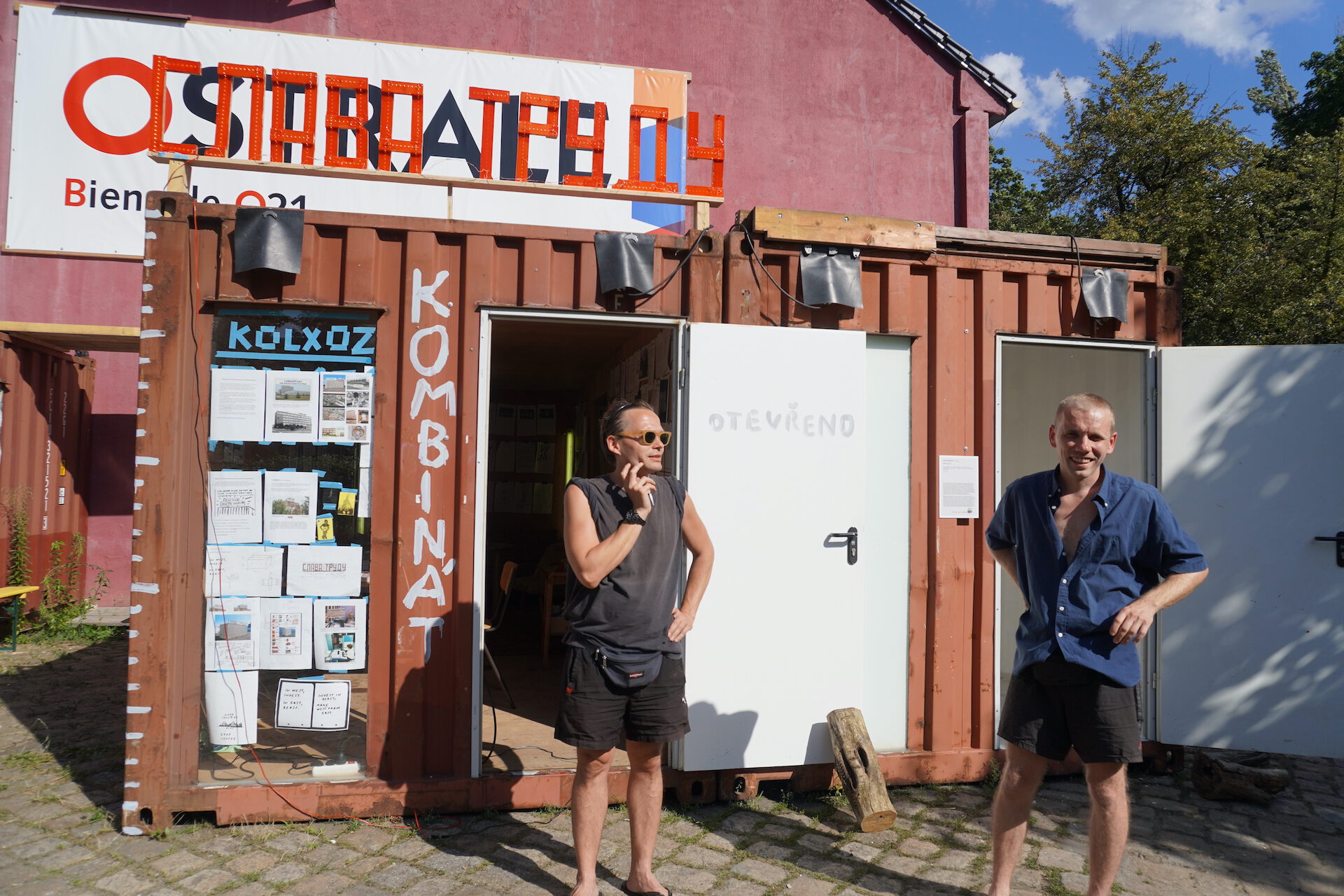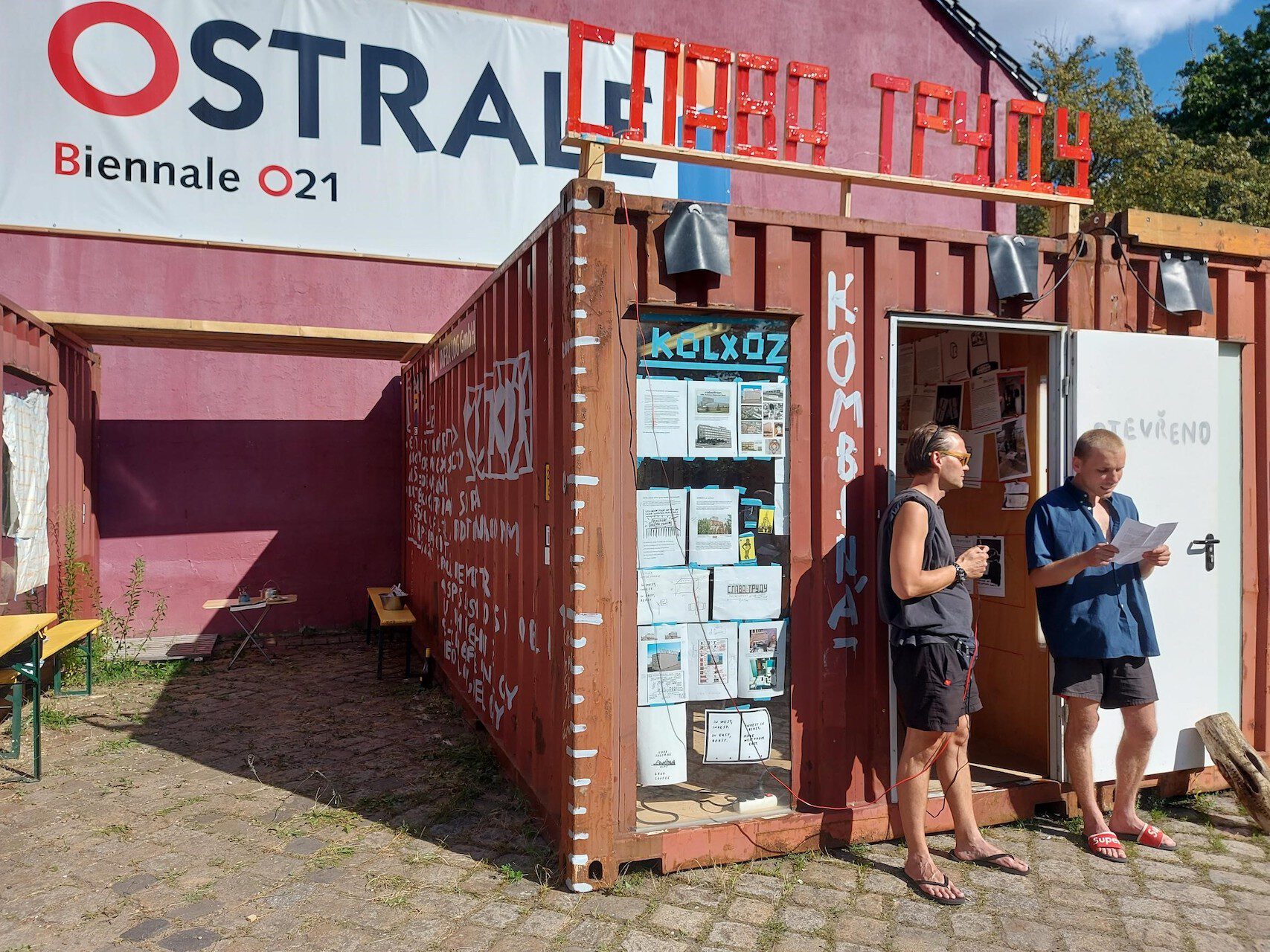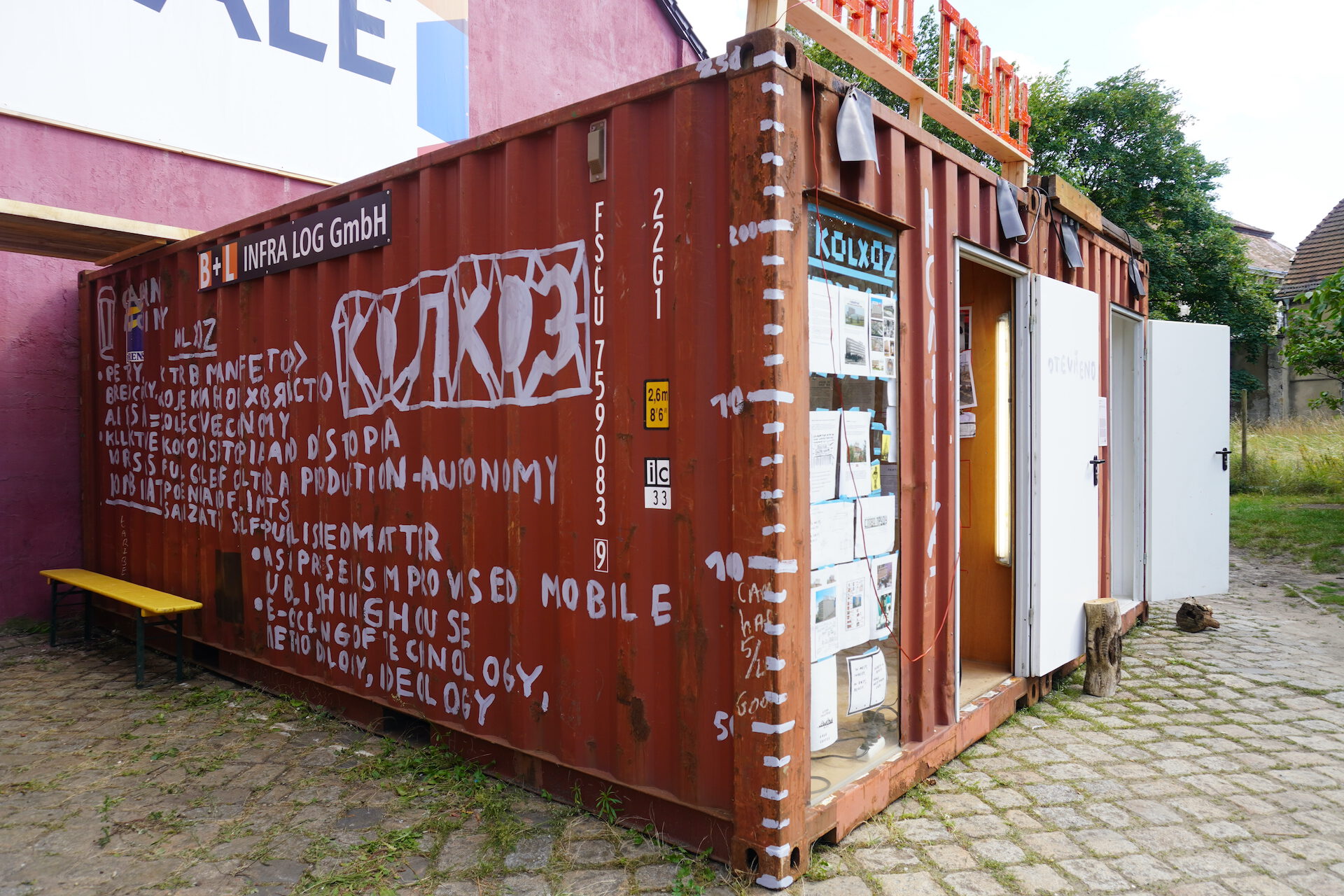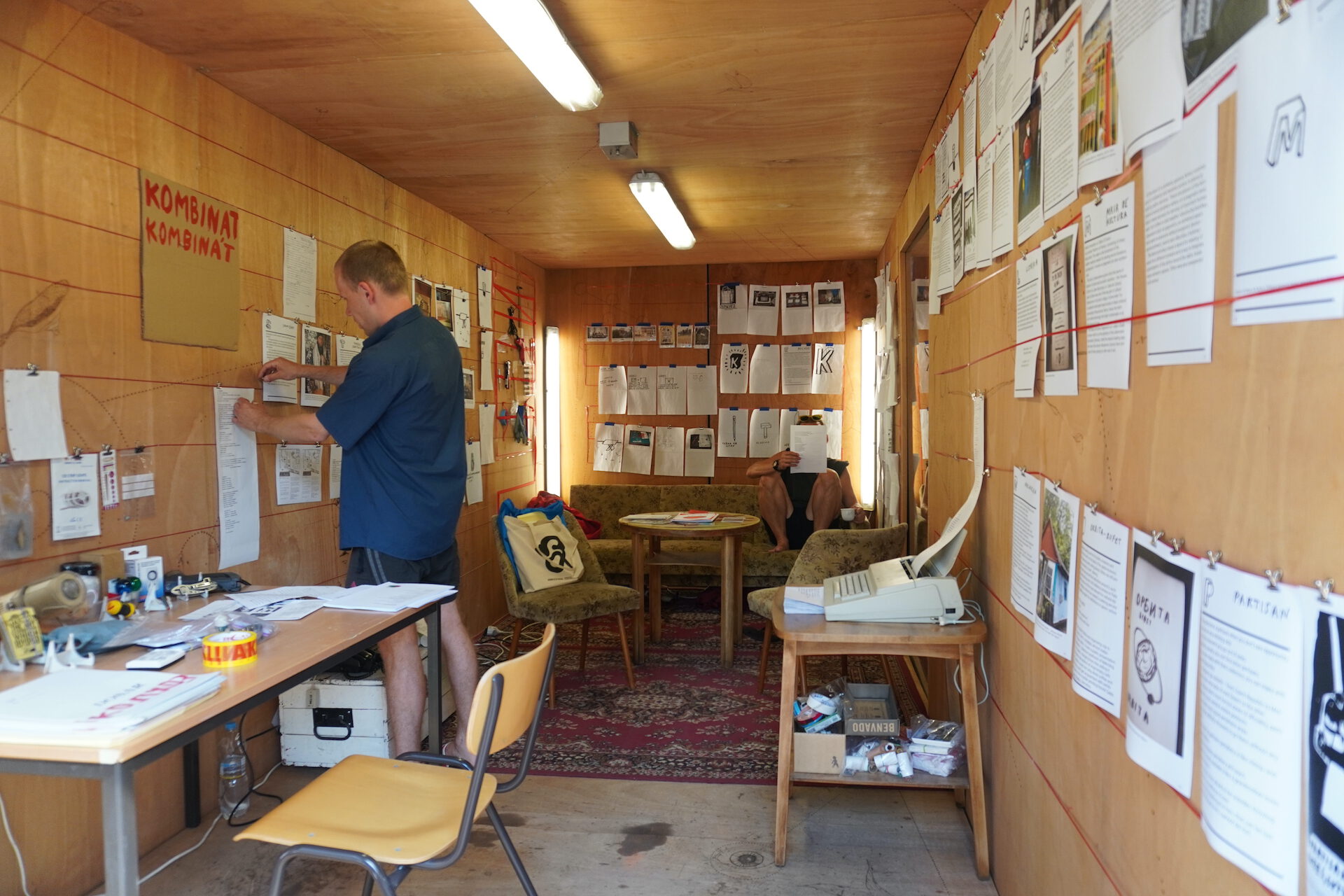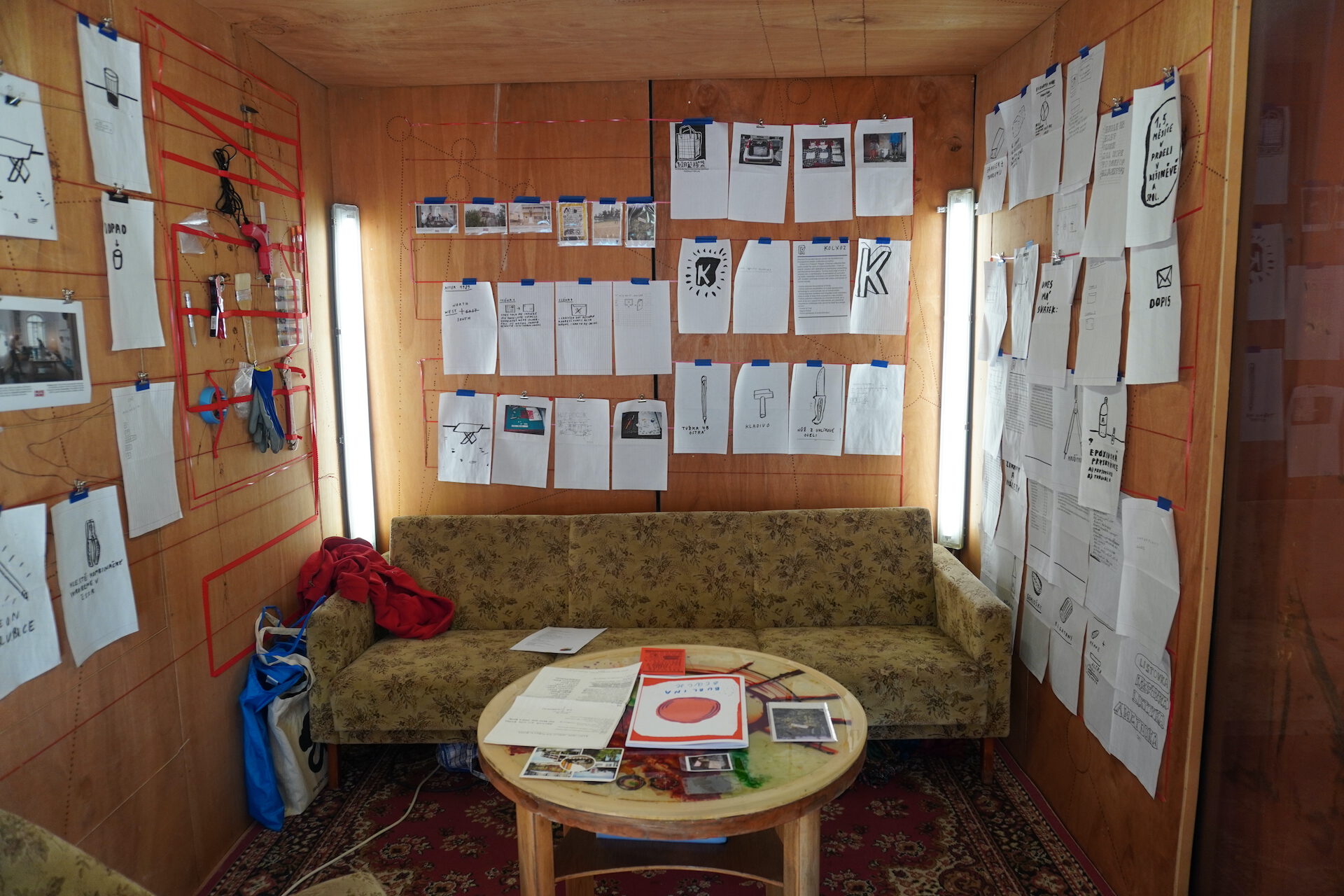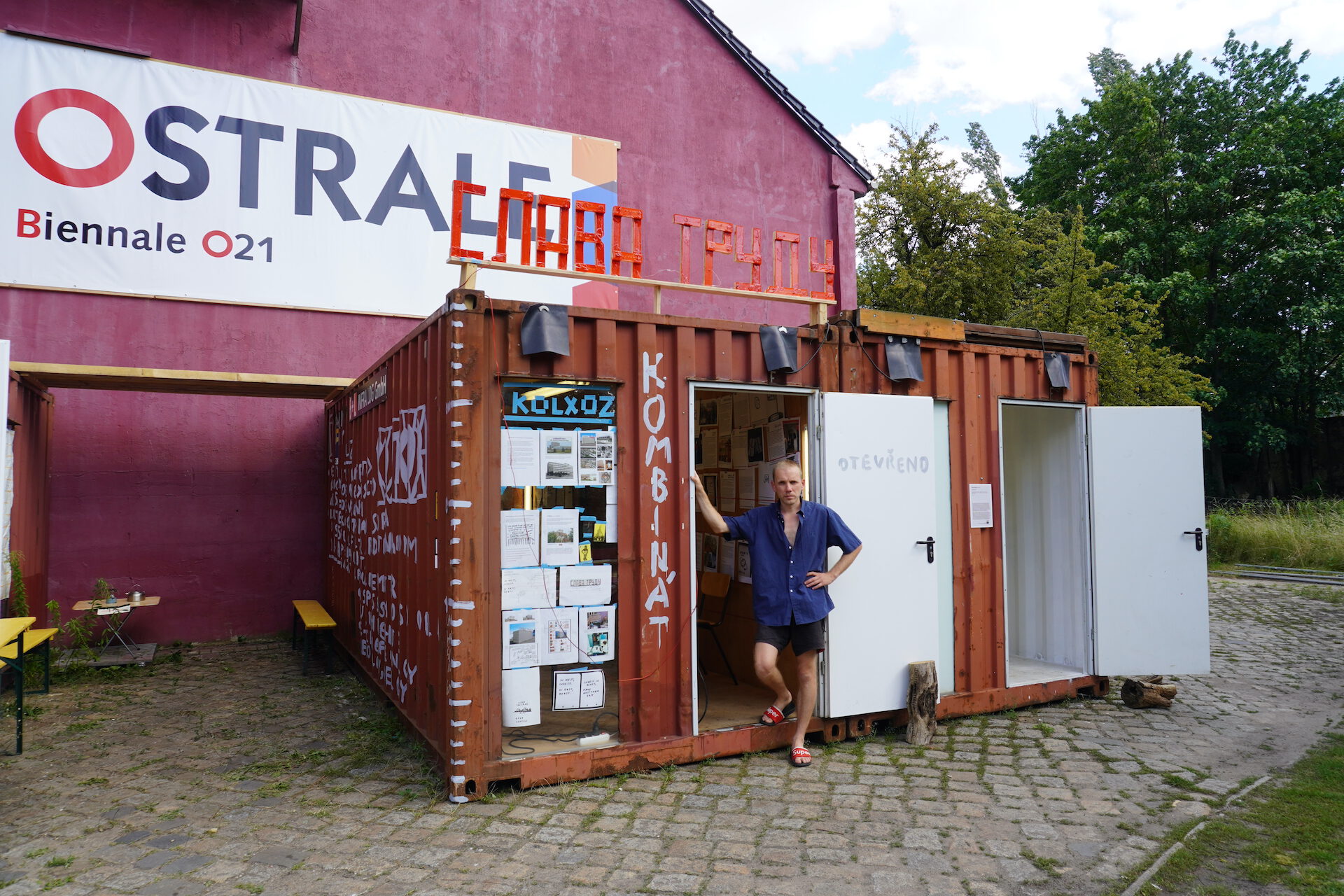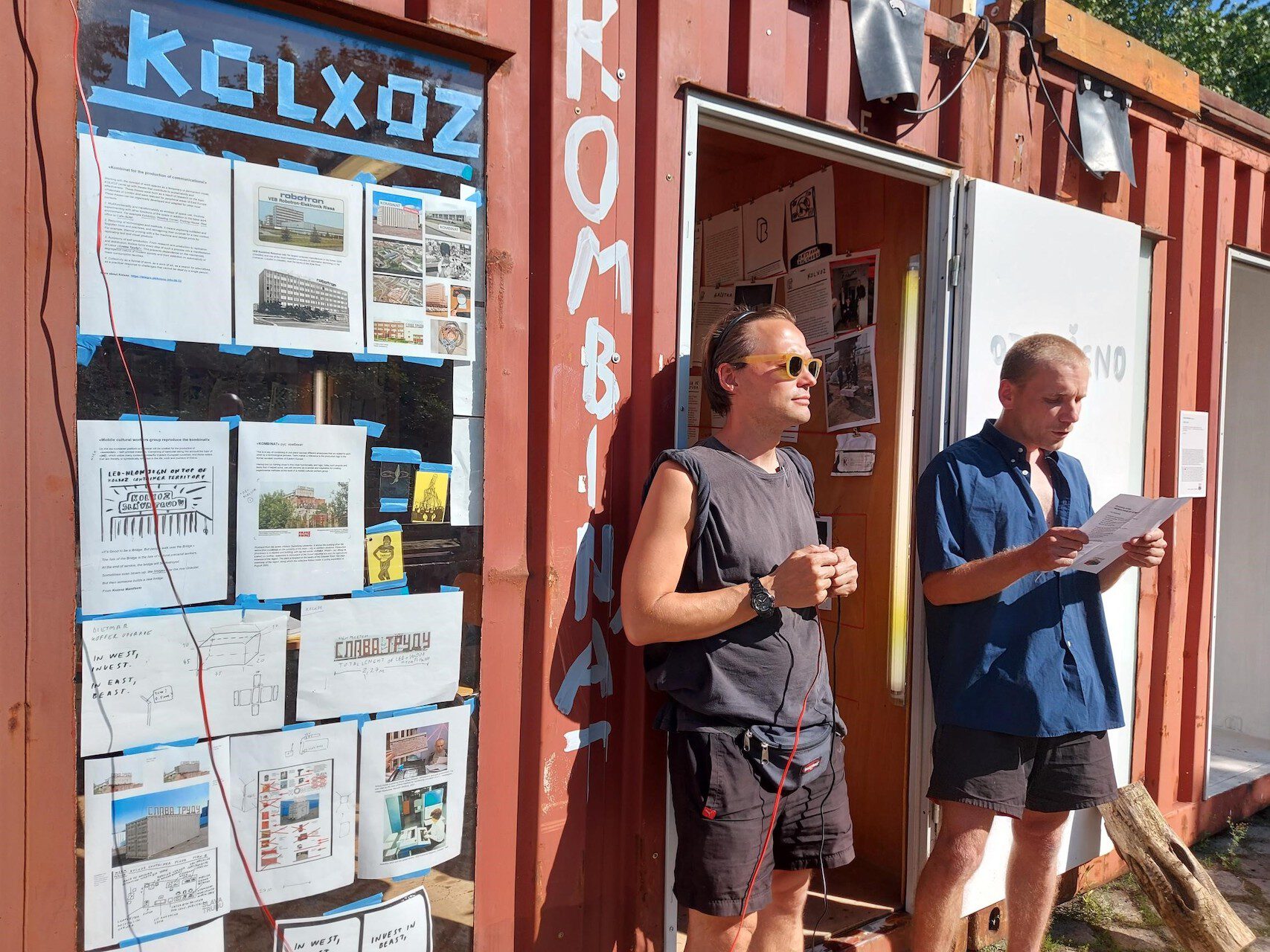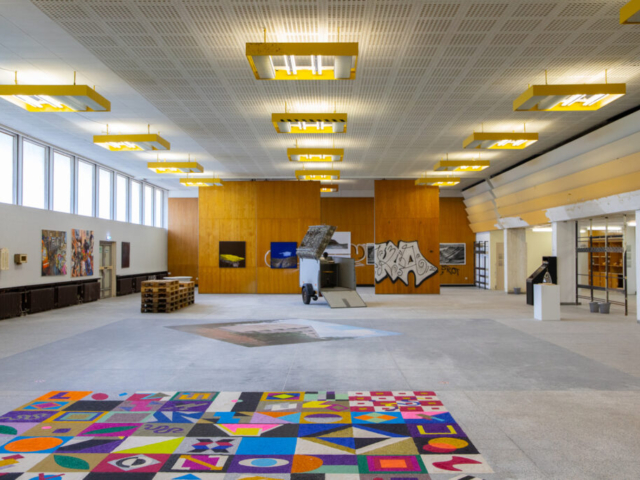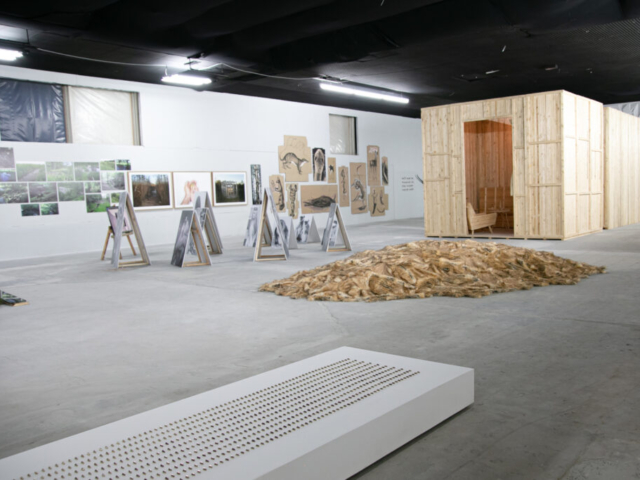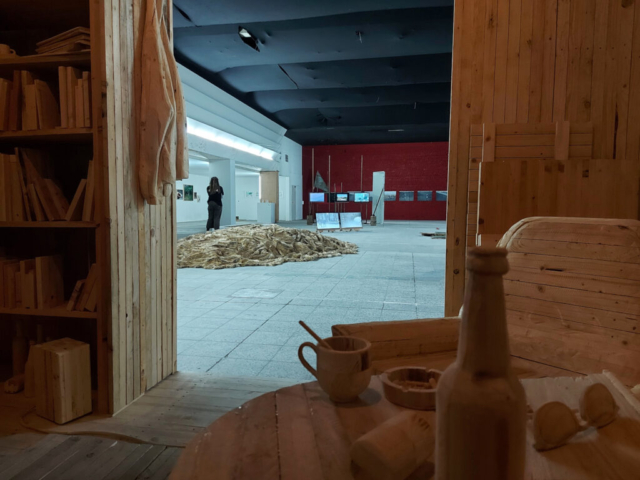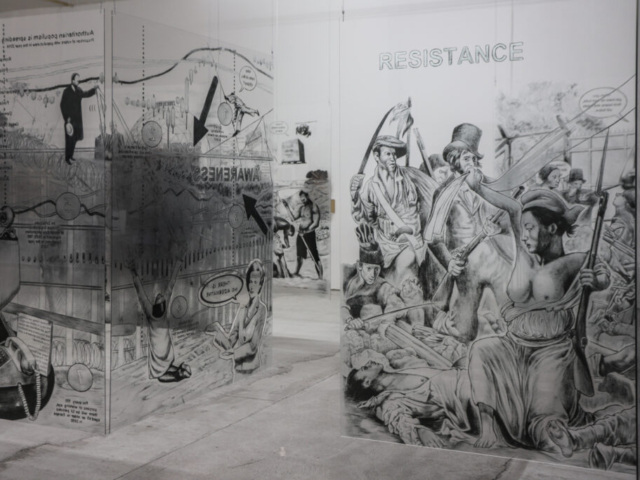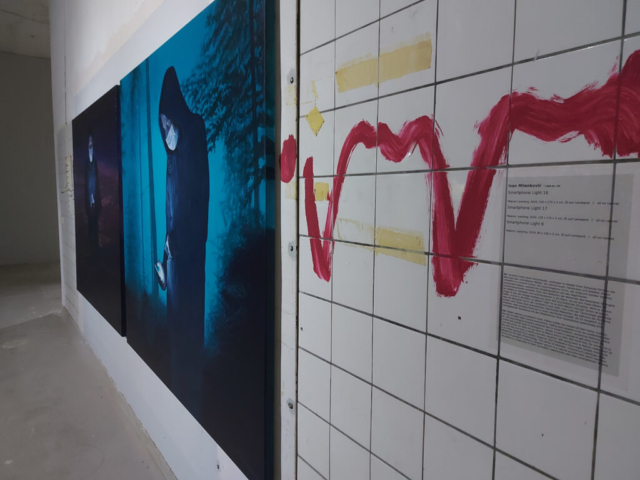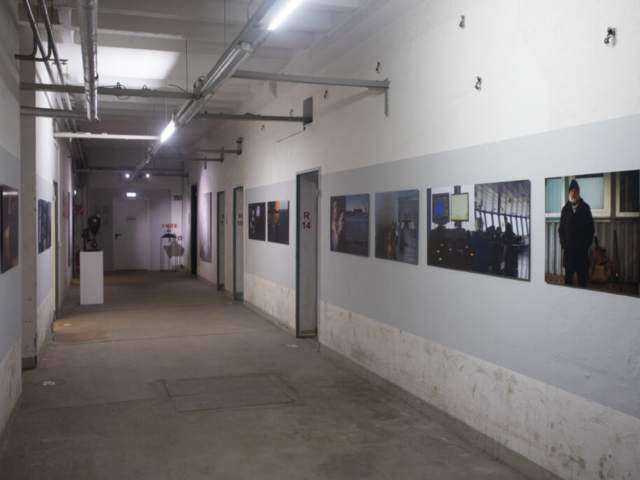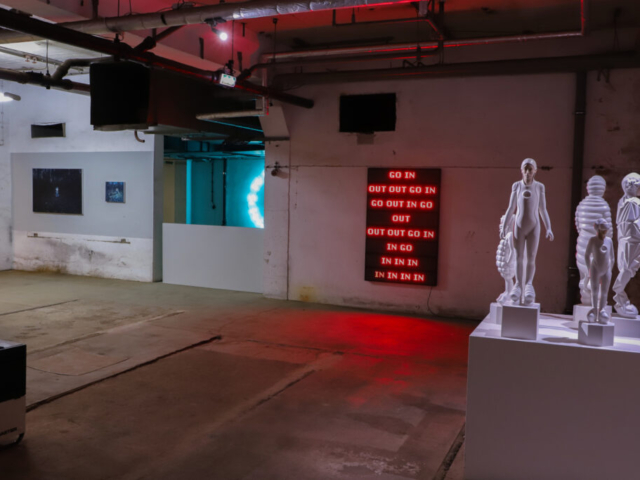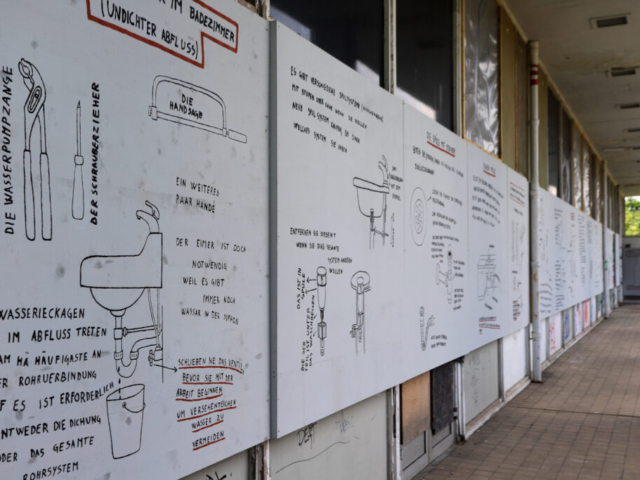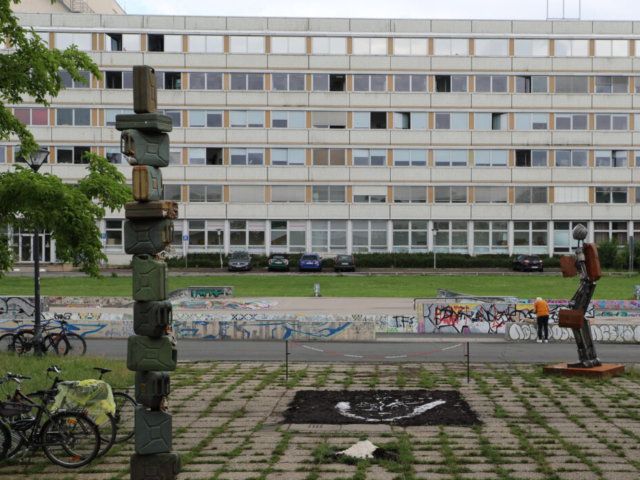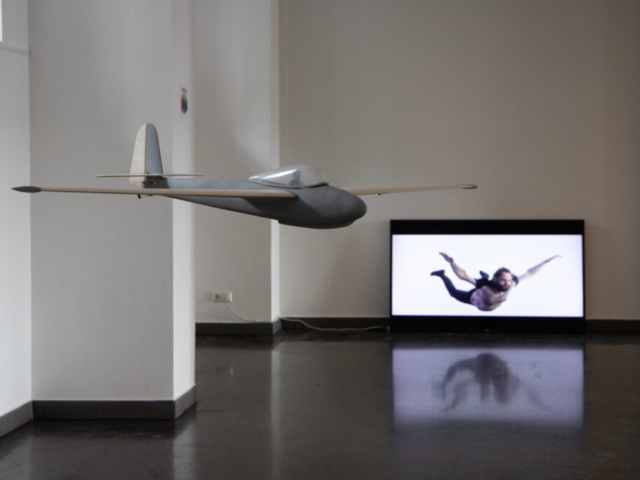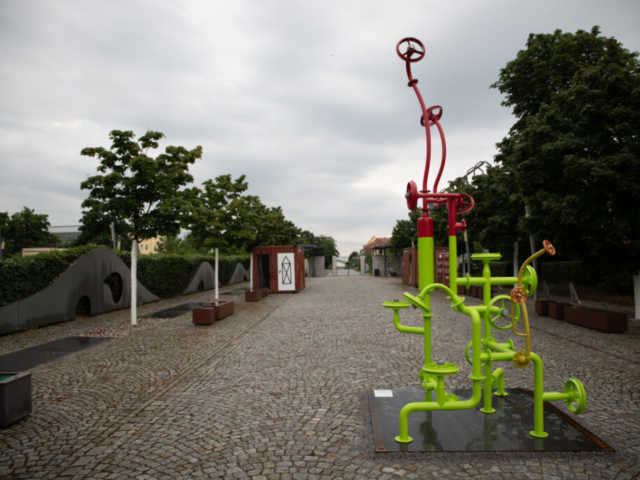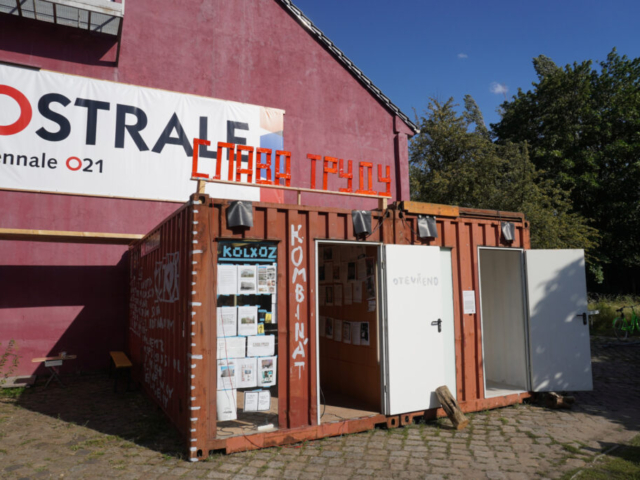VIDEOLOG
ABOUT THE PROJECT
Looking at the environmental, social and economic dynamics of the last decade (or, to put it bluntly, "the end of the world as we know it"), it is increasingly clear that the imperative of continuous growth and development is no longer a sustainable vision for our future, if we want one at all.
But even though more and more individuals come to this realization, the greater systems that govern our world and our societies seem less willing to change their ways. Sometimes it feels as if we are caught in a current against which it is pointless to fight, but swimming upstream seems more important than ever as we do not have as much time as would normally be needed for such fundamental cultural shifts.
The role of art in this context is problematic: should it serve as a means of to develop sensibility and empathy for a deeper understanding of these questions? Or would this be a restriction of artistic freedom and an invitation to propaganda? Is art a luxury of the developed world that should be abolished first when we reduce our consumption and limit our material needs? Or is it, on the contrary, the most important tool to survive and maintain our hopes in an otherwise hopeless and frightening world?
Connecting four cities with a close relation to water and building bridges between two ECOC cities among them – Dresden in Germany by the river Elbe, Budapest in Hungary by the river Danube, Rijeka (ECOC 2020) in Croatia on the coast of the Adriatic, and Kaunas (ECOC 2022) in Lithuania by the Nemunas and Neris rivers –, the project Flowing Connections (FLOC) explores the artistic, ecological and cultural questions of waterside living, the rivers and seas that nourish and threaten our cities in equal measure, divide and unite people, nationalities and landscapes, and our caring or abusive relationships with them.
With an international curatorial team including curators from each partner country, FLOC will establish a pool of cca. 160 artworks from and around the partner countries and from all around the world that will be then shown in three exhibitions of various scale in Germany, Hungary and Lithuania: first as part of the OSTRALE Biennale O21 exhibition in Dresden during the summer of 2021 in cca. 6000 m2, then at the Project Space of the Art Quarter in Budapest during the spring of 2022 in cca. 400 m2, and finally in frame of the ECOC program of Kaunas during the summer of 2022 in cca. 1500 m2. The exhibitions are accompanied by an Artist in Residence Program in frame of which four artists or artist collectives from the partner countries will spend a month in Dresden preparing artworks in four shipping containers, that will later on be exhibited in all four partner cities in frame of the exhibitions and by themselves in Rijeka.
The curatorial and exhibition work of FLOC is complimented by a series of internal workshops for the leaders and employees of the partner institutions, where experiences and good practices in the fields of digital cultural management, art education, the cultural use of postindustrial facilities and the inclusion of people with disabilities will be exchanged, shared and researched, resulting in a publication and a documentary film about the results. The project is co-funded by the Creative Europe Programme of the European Union.
INTERNATIONAL CURATORIAL TEAM
“My youth in Lithuania was marked by the existence of political borders between East and West. Since I got engaged with art, I was in a permanent search for boundaries between disciplines or media, wishing to overcome them. But generally, I am interested in coexistence itself as an idea; and art is my preferred way of storing and transporting information between different places or cultures. There is one particular phenomena that has always entranced me: the fluid (dynamic) continuity emerging from particular artistic positions. Some artworks never come to a dead end, but permanently stay in flow and offer a conservation of energy. Tireless pushing and unveiling of man-made boundaries and inventing of new formats seem to be an essential part of that process. I guess, the secret is to move toward the starting point, instead of beginning at the starting point.”
Patricija Gilyte is a visual artist, former participant of the OSTRALE O11 and O16 exhibitions; invited artist of the Kaunas Biennial 2011, REWIND - PLAY - FORWARD. Member of the curatorial team for the 3rd Artists’ Biennial "Factor X. The Chromosome of Art" at Haus der Kunst Munich 2017; member of the German Artists’ Association and the Lithuanian Artists’ Association and Letmekoo (Lithuanian Interdisciplinary Artists’ Association). Studied at the Academy of Art Vilnius / Art Institute Kaunas and at the Academy of Fine Arts Munich. In addition to site-specific works, her work includes performative sculpture, video art and installation, and is dominated by questions concerning the concept of the border. Supported by various scholarships, her work developed during residencies and cooperation projects in Germany, Austria, Lithuania, Poland, Greece, Serbia, Turkey, Switzerland. Her video works have been shown in various international exhibitions. In 2019 the KKKC Kunsthalle Klaipeda, Lithuania presented her solo exhibition EQUINOX, in 2020 her solo exhibition will be opened at the Vytautas Kasiulis Art Museum in Vilnius. Mandated by the „Kaunas – European Capital of Culture 2022" institution.
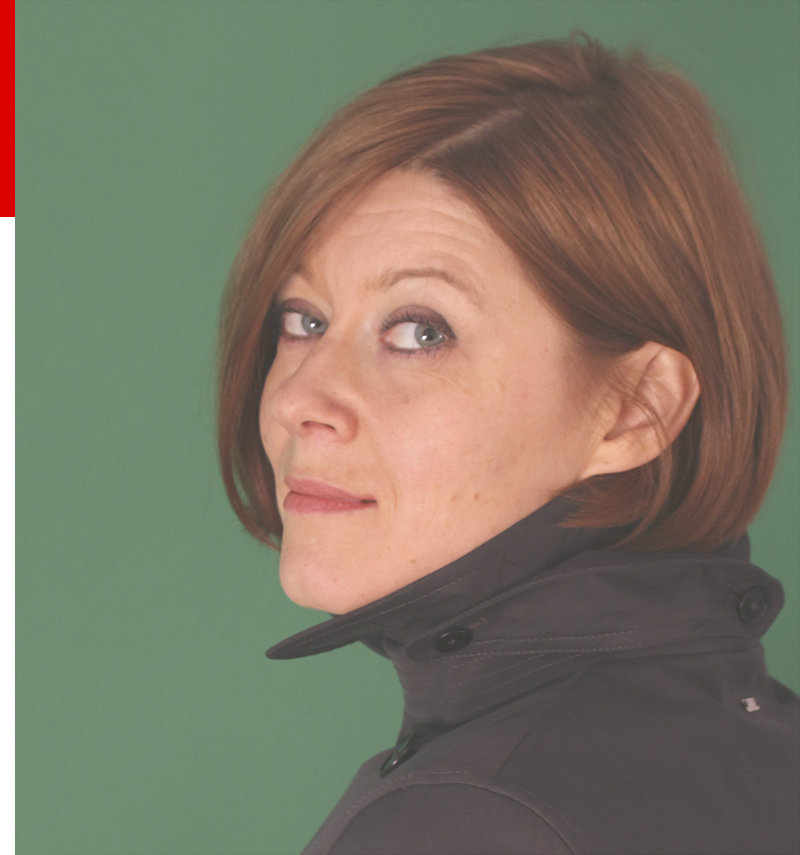
(Photo © Airida Rekstyte)
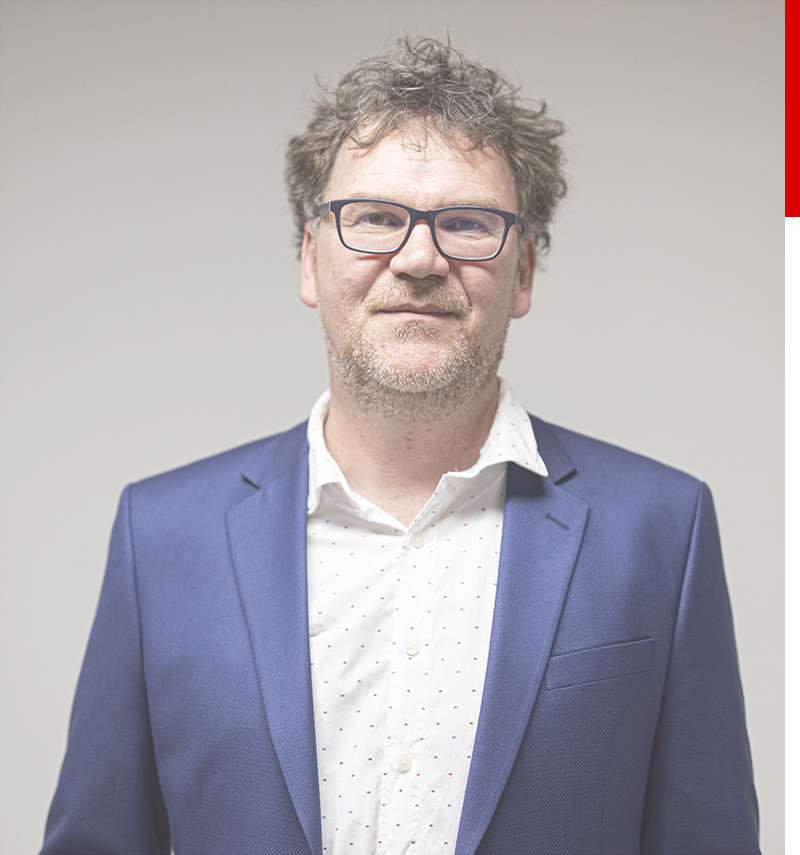 (Photo © Barabás Neogrády-Kiss)
(Photo © Barabás Neogrády-Kiss)
“It is hard to believe in a curatorial statement in general. But at the same time, it is very tempting to interpret the text-based curatorial work as phylacteries. This was the name of open-ended scrolls hung around the necks of represented figures that were to cure the difference of the image by supplying narratives beyond the limits of pictorial representation. The word originally meant a watch post, amulet, and a prayer box. So the text watches over the meaning, fixing it or attempting to do so. The image accepts it, wears it, or may consider it parasitical. What meanings we attribute to the images also depends on what texts we read.”
Krisztián Kukla is a curator and the artistic director of Art Quarter Budapest (exhibitions, artist studios, artist in residence). Doctor of Philosophy at the University of Debrecen. As a DAAD scholarship holder he studied art history and philosophy at the WWU Münster. Currently he is an associate professor at the Faculty of Media and Communication of Milton Friedman University, Budapest, and a lecturer at the Faculty of Aesthetics of Pázmány Péter Catholic University. From 2011-2015 he was the managing director of the MODEM Centre for Modern and Contemporary Art in Debrecen, Hungary. Since 2015, he is the artistic director and organizer of the Leopold Bloom Art Award, the most important independent art prize in Hungary.
“We are looking for »modes of destabilization of the system of apparent reality through mechanisms of discursive analysis (and visual representation) in order to create gaps, territories of the ‘possibilities undiscovered’ which are to be found outside of the given choices imposed by the dominant politics of culture«. We are interested in topics of imaginative geographies (E. Said ), that is – the ways that other places, people, and landscapes are represented, the ways these imaginings reflect the preconceptions and desires of their inventors, and the relations of power between these authors and the subjects of their imaginings. We find the potential in non-institutional educational platforms as a way of forming collectivities, public exchange of critical positions and personal relation to the notion of official truth and belief systems.”
Slobodne veze is a self-regulating initiative of artists, curators and cultural practitioners, founded in 2009. Two founding members participate in the curatorial team: Ivana Meštrov (to the left) studied art history and archaeology at the University Pantheon-Sorbonne in Paris with a focus on contemporary art. Until september 2020, she was curator of the Museum of Modern and Contemporary Art in Rijeka (MMSU), responsible for the exhibition program of the Museum of the European Capital of Culture Rijeka 2020. Nataša Bodrožić (to the right) studied at the Faculty of Political Sciences in Zagreb, at the University Lumiere 2 in Lyon and at the University of Arts in Belgrade. So far she has co-curated or produced numerous exhibitions, symposia and projects in public space in Croatia and abroad. Ivana Meštrov and Nataša Bodrožić were both co-curators of the Biennial of Young Artists of Europe and Mediterranean (BJCEM)> MEDITERRANEA 16:ERRORS ALLOWED, in Ancona, Italy in 2013.
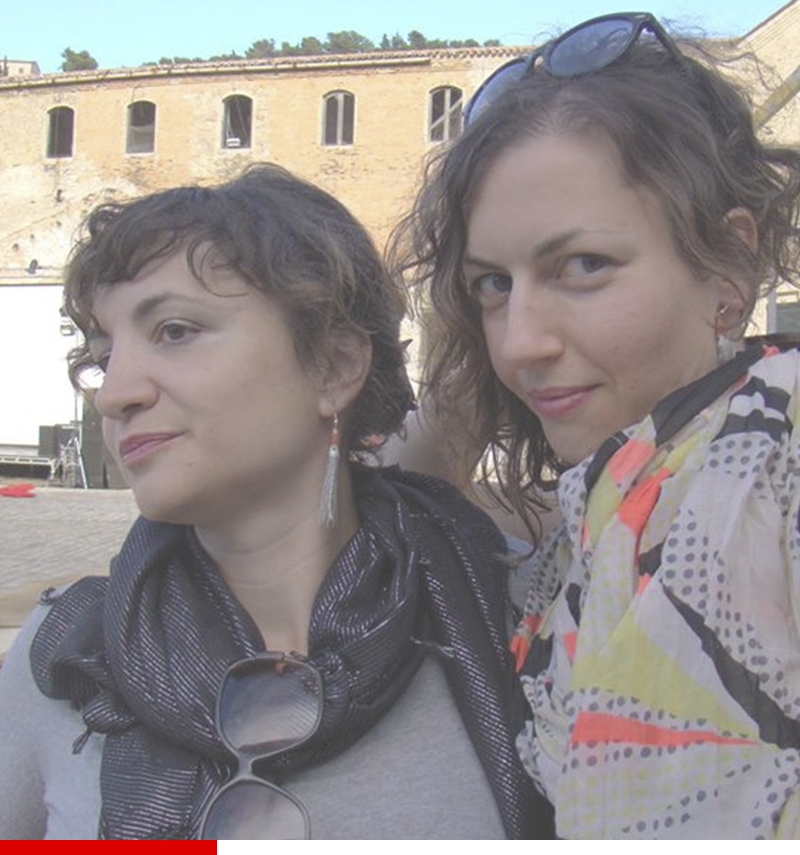 (Photo © Slobodne Veze)
(Photo © Slobodne Veze)
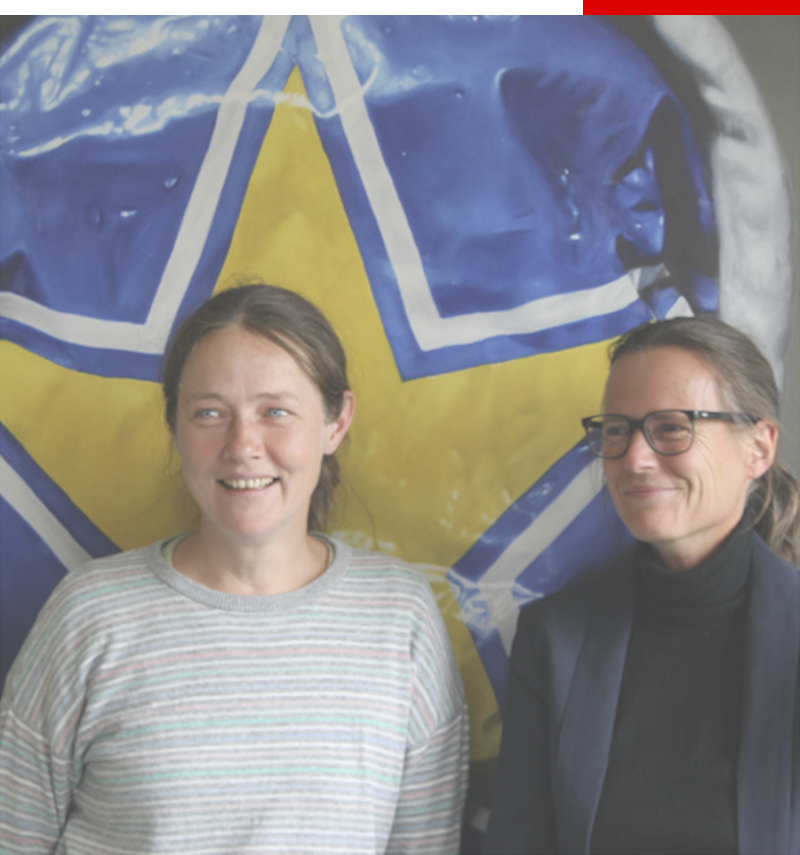 (Photo © OSTRALE)
(Photo © OSTRALE)
“Contemporaneity is a central category of our work, carried by the spirit of interfering, enriching our society and constantly contributing to renewal. This is only possible if questions, issues and paradigms of our time are not reduced to one view. We are looking for diverse answers, individual positions and complex artistic perspectives. Constantly examining our own attitudes, questioning the foreign and the new with interest, is for us both a basic attitude and a challenge. Looking outwards opens up the possibility for us to bring in our own points of view and place them in an open discourse. For us, creativity arises from the forces of cultural identity, global exchange, urban open space and empirical play in art. To promote and challenge these will continue to be our mission.”
Andrea Hilger (to the right) is the 1st representative and artistic director of OSTRALE. Born in 1970 in Leipzig, artist, organizer, founder and director of the OSTRALE – Center for Contemporary Arts 2007, founder of TANZart Dresden 1997 and HILLUMINATION – Light + Stage Design 2001, board member of Tanzbühne Dresden e.V. since 1999. 2009 recipient of the Förderpreis of the City of Dresden, member of the Orga-Team of the Konferenz der Konkurrenten (Conference of Competitors) in preparation for the European Capital of Culture 2025 applications. Antka Hofmann (to the left) is the 2nd representative, co-founder and co-director of OSTRALE, and since 2013 deputy head of the exhibition construction team. Born in 1977 in Großenhain. Artist, cultural manager, lives and works in Dresden and Heiligendamm. As an artist, she has had solo exhibitions in Berlin, Leipzig and Dresden, as well as various group exhibitions in Germany, Poland, Russia, Belgium, Spain and Malta.
PARTNER INSTITUTIONS
OSTRALE - Center for Contemporary Art (Dresden / Germany) is primarily concerned with providing a space for international, cross-border cultural projects. In doing so it is helping to develop an open cultural landscape where different artistic viewpoints engage in dialogue. As well as seeking connections between artforms, it also aims to create links with science, education and social engagement. OSTRALE exhibitions and projects have a long-lasting impact because they focus on important social issues that address the European identity. The artistic expression, free of any purpose or use imposed from the outside, exemplifies the profound nature of what the works are trying to convey. OSTRALE exists at the heart of Dresden’s vibrant cultural life, a scene that embraces all forms of art. OSTRALE acts actively on both the local and the international level participating in art exhibition projects outside of Germany as well, for example in Hungary, Poland, Malta, Kenya and many other countries. OSTRALE is the lead partner of the FLOWING CONNECTIONS project.
Art Quarter Budapest (Budapest / Hungary) is an independent art centre. It was initiated in 2012 and it functions as an exhibition place for contemporary art, studio house and residency program in a unique renovated factory building, the former Haggenmacher brewery. Numerous Hungarian visual artists and creative enterprises found their constant base in the building complex. Art Quarter Budapest runs an international artist in residency program, provides space for a unique experimental sound studio (Spatial Sound Institute) and organizes exhibitions in its non-profit Gallery called Project Space. AQB became a cultural melting pot of an international creative community with a wide variety of artists from the music, applied arts, dance and visual art scenes. Focusing on our audience development, we are organising art events and cultural programs for the local community and also creating international networks at the same time.
VSI Kaunas 2022 (Kaunas / Lithuania) was established by the Kaunas City Municipality, the Kaunas District Municipality and the association “Kultūros tempo akademija”, as the main organisation responsible for the implementation of Kaunas European Capital of Culture 2022 programme. The organisation’s main goals are closely connected to the City’s strategic development plan and include the involvement of society in changemaking and addressing some of its key challenges. Since its establishment, the organisation has been highly focused on local and artistic community engagement for the research, interpretation, promotion and preservation of modernist heritage, as well as the development of international partnerships among modernist cities. Building up to the title year of 2022, the current activities of Kaunas 2022 comprise a range of international and local projects, including an international heritage summer school, heritage related conferences, the development of the online heritage platform modernizmasateiciai.lt and others.
Slobodne Veze (Loose Associations - contemporary art practices, Croatia) is a self- regulated artists’, curators’ and cultural workers’ initiative. They are looking for modes of destabilization of the system of apparent reality through mechanisms of discursive analysis. The organization is active in Croatia and abroad. In 2013 they co-curated the Mediterranea 16 - Young Artists Biennial in Ancona, Italy and their collaboration with the Biennial network continues till today. In 2013 they started a project & citizens campaign, internationally known as MOTEL TROGIR, for the preservation and critical re-evaluation of late modernist architectural heritage. Within this framework they are organizing cultural events, exhibitions, artist in residence programs, study visits, guided tours, but the most important segment of the project is the research of the period 1945-1990 in Croatia and publishing related to it. Currently they are also partners in the EU project Collective domain of cultural memory.
TIMELINE
| 2020 | |||
| 01.09 | PROJECT BEGINS | ||
| 25.09. | KICK-OFF MEETING | – Selection of Artists in Residence – Communication matters (Website, Logo, usw.) – Financial discussion | ONLINE |
| 12.10.- 19.10. | 1. CURATORIAL MEETING | – Visiting exhibition sites – Jury meeting, artist selection | DRESDEN |
| 18.10. | WORKSHOP | – Digital Cultural Management – Financial training session for partners | DRESDEN |
| 2021 | |||
| 18.02.- 26.02. | 2. CURATORIAL MEETING | – Jury meeting, final artist selection – Positioning workshop, building discussions | DRESDEN |
| 24.02. | WORKSHOP | – Case study and brainstorming for the OSTRALE Biennale O21 | DRESDEN |
| 05.06.- 20.06. | FLOC-ARTIST IN RESIDENCE (1) | Melanie Richter, Jana Rinchenbachová | DRESDEN |
| 05.07.- 18.07. | FLOC-ARTIST IN RESIDENCE (2) | Anna Fabricius | DRESDEN |
| 20.07.- 02.08. | FLOC-ARTIST IN RESIDENCE (3) | KOLXOZ | Viktor Vejvoda, Maxim Polyakov | DRESDEN |
| 01.09.- 18.09. | FLOC-ARTIST IN RESIDENCE (3) | Gabriele Gervickaite | DRESDEN |
| xx.06.- xx.06. | 3. CURATORIAL MEETING | – Artist assistance in build-up at the OSTRALE Biennale O21 – Artist selection for Budapest and Kaunas | DRESDEN |
| 29.06. | PRESS CONFERENCE - OSTRALE Biennale O21 / 11h | DRESDEN | |
| 01.07. | OPENING - OSTRALE Biennale O21 / 16h | DRESDEN | |
| 01.07.- 03.10 | EXHIBITION OSTRALE Biennale O21* | * The realisation of the exhibition itself is financially supported by the funding institutions of the respective organising institution. Only the opening events are funded within the framework of the FLOC project. | DRESDEN |
| 2022 | |||
| 19.03.- 22.05. | EXHIBITION OUT of OSTRALE O22 Budapest, Flowing Connections | BUDAPEST | |
| 20.03. | WORKSHOP | – Art Education and Audience Development | BUDAPEST |
| 01.06.- 30.06. | AIR-EXHIBITION Flowing Connections / Artist in Residence Exhibition | SPLIT | |
| 02.06. | WORKSHOP | – Postindustrial Spaces In Cultural Use | SPLIT |
| 18.08.- 05.10. | AIR-EXHIBITION Flowing Connections / Artist in Residence Exhibition | KAUNAS | |
| 19.08. | WORKSHOP | – Inclusion of people with disabilities – Concrete inclusion measures for the Kaunas exhibition | KAUNAS |
| 04.10. | PRESS CONFERENCE OUT of OSTRALE O22 Kaunas, Flowing Connections | KAUNAS | |
| 05.10. | OPENING OUT of OSTRALE O22 Kaunas, Flowing Connections | KAUNAS | |
| 05.10.- 13.11. | EXHIBITION OUT of OSTRALE O22 Kaunas, Flowing Connections* | * The realisation of the exhibition itself is financially supported by the funding institutions of the respective organising institution. Only the opening events are funded within the framework of the FLOC project. | KAUNAS |
| 02.12. | WORKSHOP / WRAP-UP MEETING | – Evaluation of the whole project – Sustainability measures | DRESDEN |
| 03.12. | PUBLIC PRESENTATION | – Panel talk with all partners – Premiere of the FLOC Documentary Film – Launch of the FLOC Booklet | DRESDEN |
Please note that exact dates of the planned activities might be subject to changes, especially regarding the current Corona pandemic situation. This timeline will regularly be updated when changes occur.
ARTIST IN RESIDENCE PROGRAM
MELANIE RICHTER, JANA RINCHENBACHOVÁ
Residency period: 05.06. – 20.06.2021
Delegated by Andrea Hilger & Antka Hofmann
OSTRALE – Centre for Contemporary Arts, Germany
URBAN GARDENING + WATER LAB
Water is the basic resource of life and our use of it is questionable. This is mostly because of a lack of understanding, and a sense of powerlessness in the face of social structures that prevent us from dealing with this life-giving element in an ecologically sustainable and sensible way. For this project, at the location of the OSTRALE in Dresden, the artists Rinchenbachová and Richter are researching thematic areas of on-site and landscape design with a focus on water management. Under the aspect of the ecological regulation of the water balance, they are developing forward-looking ideas and participatory models in interdisciplinary cooperation, with the participation of other artists and local residents, with the aim of developing and implementing the models together. The container serves as an artistic engineering office and is at the same time a place of communication and development where proposed solutions are visualised, discussed and publicly accessible.
http://www.melanierichter.de | http://rinchenbachova.com
ANNA FABRICIUS
Residency period: 05.07. – 18.07.2021
Delegated by curator Krisztián Kukla
Art Quarter Budapest, Hungary
WORK.FLOW
In the art container, two video works are shown, both exploring the relationship between personal histories and the world of work in two very different locations: Taiwan and Dresden. The film “6:30 A.M. - 6:30 P.M.” shows three foreign workers in a Taiwan textile dyeing factory. Flesh-and-blood, relatable human beings talk about their seemingly inhuman working hours. They are content with their work while they say they cannot see their families for two years. For the subjects, work seems to be the only identity they can identify with. This identity is challenged and reinforced by the artist when she places them in a situation they otherwise never experience in their lives: resting on top of the fabrics to be dyed. The other film, produced in Dresden in frame of the Flowing Connections Artist in Residence Program, explores the stories of people with migrational backgrounds currently working in the city's water cleaning and drainage facility Stadtentwässerung Dresden.
https://vimeo.com/annafabricius
KOLXOZ | MAXIM & ANTON POLYAKOV, VIKTOR VEJVODA
Residency period: 20.07. – 02.08.2021
Delegated by curators Ivana Meštrov & Nataša Bodrožić
Slobodne Veze, Croatia
KOMBINAT
The KOLXOZ is a Tiraspol–Prague collective that works within the cycle of the cultural life – from research and production to replication and distribution, turning every step of these processes into a manifestation of the perception of the surrounding reality. KOLXOZ explores the potential of limits. KOLXOZ looks for ways of organizing spaces for communication outside the formal zones. They are this year’s OSTRALE Artists in Residence invited by Slobodne Veze. For Dresden they have developed the concept of KOMBINAT, referring to the production logic of the former socialist countries of Eastern Europe; a way of combining in one place several different enterprises that are related to each other through a technological process. On the iso–container platform, a Kombinat for the production of “samizdat” (self–printed materials) will be created, as a process oriented, collective artwork with uncertain outcomes.
https://telegra.ph/kolxoz-info-08-03
GABRIELĖ GERVICKAITĖ
Residency period: 01.09. – 18.09.2021
Delegated by curator Patricija Gilytė
VSI Kaunas 2022, Lithuania
THE BODY AS AN ARCHIVAL CONTAINER VS MECHANISMS OF CONTROL
The works for the container installation are created on site in Dresden. The artist's focus is always on people, their inner selves and the situations they have experienced. The container will function as a memory archive and house an installation, using various materials and text collages, as a meeting place for the revelation of human feelings and associative sensations. In Gervickaitė's artistic practice, biopolitics plays a special role. Thus, there will also be some references to the taboo social relationship between the body and mechanisms of biopolitics that keep the human body under control. Last but not least, she will address current specifics of the pandemic and question at what point human dignity is still preserved and at what point statistics and numbers already take over. The artist will pay special attention to the search of the body – medicine relationship, which she will analyse not only as a means of helping, but also as a means of control.
http://www.gabrielegervickaite.com/
The Artists in Residence of the program are as follows:
01.03. - 19.03.2021 – Anna Fabricius (HU) / Art Quarter Budapest (HU)
29.03. - 16.04.2021 – KOLXOZ collective (TI-CZ) / Slobodne Veze (HR)
26.04. - 14.05.2021 – Gabriele Gervickaite (LT) / Kaunas 2022 (LT)
24.05. - 11.06.2021 – Melanie Richter & Kay Kaul (DE) / OSTRALE (DE)
REMUNERATION
The artist or artists working on the project receive an honorary of 1000 EUR per container, meaning that if there is more than one artist involved in the production of a container, they must split the honorary between themselves. The honorary should also cover living expenses of the Artists in Residence during their stay (apart from accomodation).
TRAVEL COSTS
Travel costs for a one-time round trip (from home to Dresden and from Dresden to home), with the cheapest available mode of travel, are reimbursed for the Artists in Residence by OSTRALE. Further travels during the residency period, if necessary, must be covered by their artists themselves.
ACCOMODATION
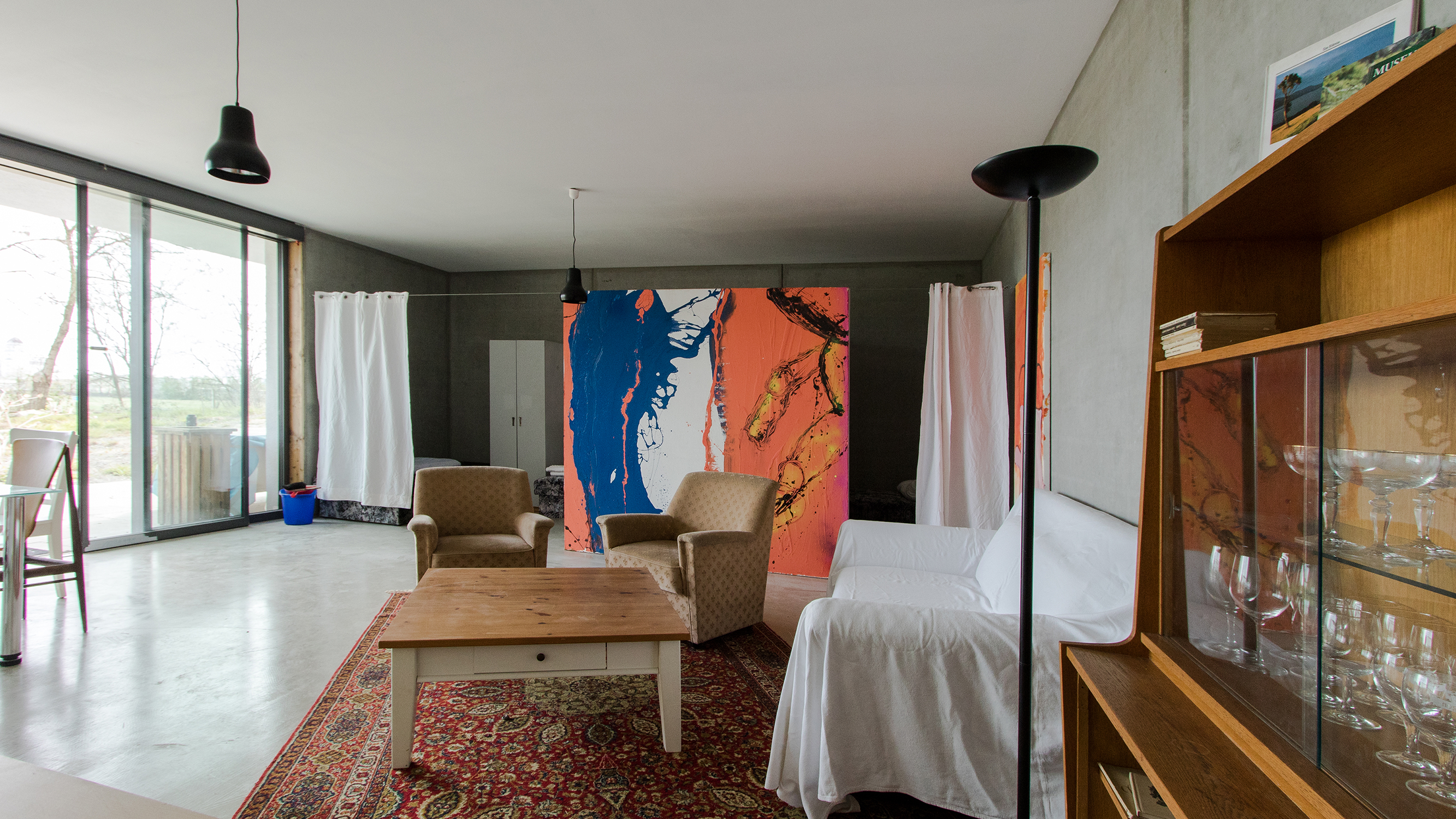 The OSTRALE Artist in Residence apartment in Dresden-Übigau
The OSTRALE Artist in Residence apartment in Dresden-Übigau
Artists in Residence will be staying free of charge in the Artist in Residence apartment situated in the new building of the riverside base of OSTRALE (Rethelstraße 45, 01139 Dresden-Übigau, Germany). It has a separate entrance, a big living space with a fully equipped kitchen, a bathroom with shower, and two separated sleeping areas. Electricity, hot water, TV and Internet connection are provided. Supermarkets, public transportation and other facilities are within walking distance. When arriving by car is the most ecological, sustainable way, parking can be arranged.
MATERIAL COSTS
Artists in Residence are strongly encouraged to work in a sustainable and ecologically friendly way and minimize the purchase of new items or materials for the production of their work. During their stay in Dresden, they are more than welcome to use OSTRALE’s ample supply of paint, wood, other materials and workshop equipment already available on site, as well as its tech pool for electronic and media devices. About specific needs and available supplies, OSTRALE will contact the future Artists in Residence before their arrival, who will also receive manual and technical assistance from the OSTRALE workshop team during their stay.
If, after a thorough examination of the resources and the ecologically sustainable use of materials, a material requirement of a financial nature should nevertheless arise, this can be redeemed up to 500 EUR per container. Such purchases, either done at the Artist in Residence’s home country and brought to Dresden or done on site in Germany, will be reimbursed in EUR by OSTRALE against receipts. Newly purchased materials or devices should be built into the artworks in the container, and if recoverable, will remain in the possession of OSTRALE even after the planned exhibitions and the dismantling of the containers. The 500 Euro material subsidy is intended exclusively for possible installation costs, always taking into account the exhaustion of existing resources under the aspect of an ecologically sustainable operation. It is not an addition to the artist honorary.
THE CONTAINERS
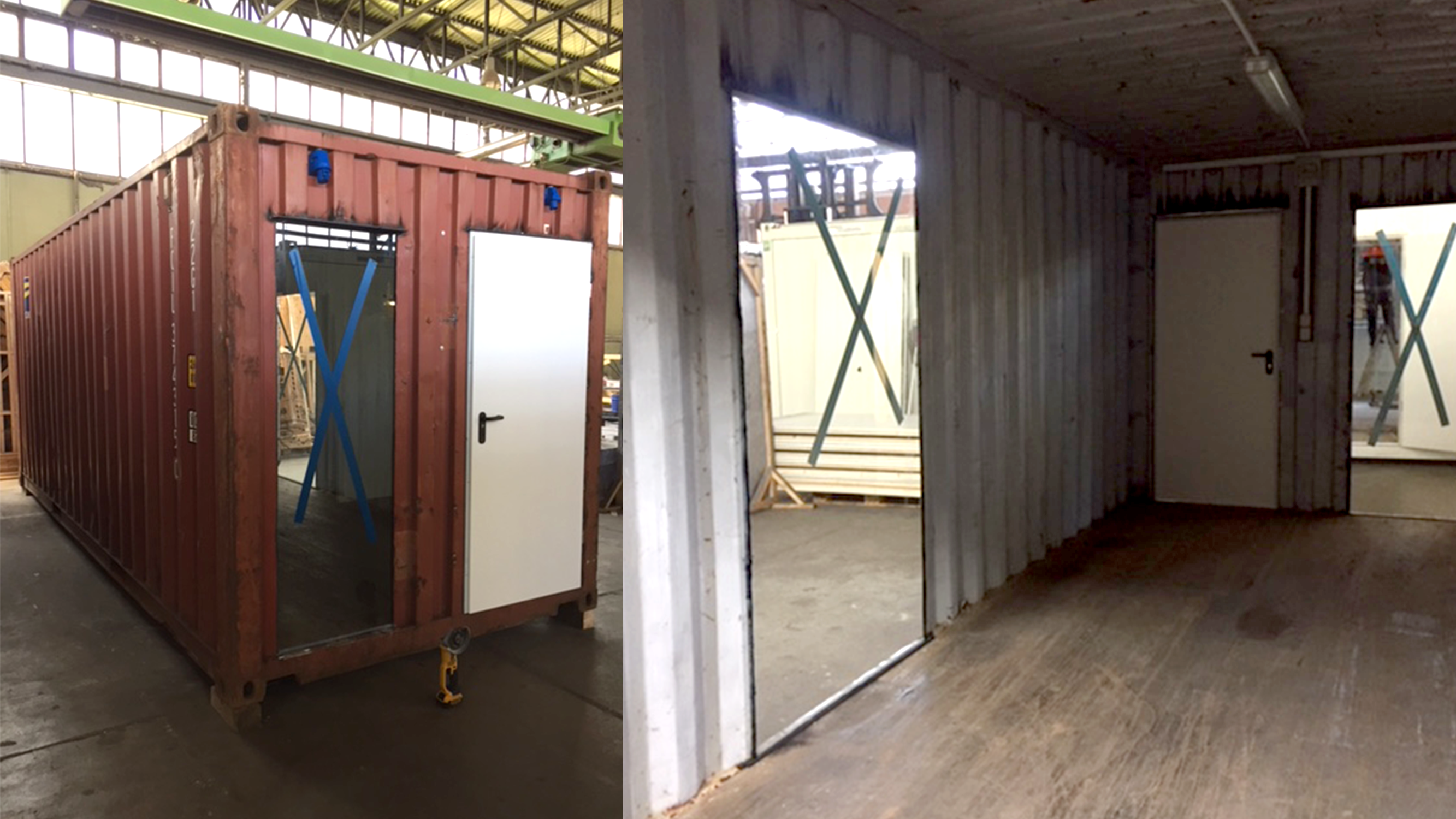 Modified art containers in their initial state
Modified art containers in their initial state
The containers to be used for the project are standard shipping containers altered for the purposes of the project. They are 6 m long, 2,5 m wide and 2,5 m high, equipped with one normal size door, two plexiglass windows (1130x2000mm and 700x2000mm), electricity and lighting. Artists are invited to alter and modify the inside and the outside of the containers as they wish, as long as the structural integrity of the outer shell is kept intact (no holes in the walls for example).
The finished containers should remain transportable, safe to the audience, and should be autonomous, meaning that in an exhibition context, they should need no more assistance than the turning on and off of the electricity and the opening and closing of the doors. It is important to note that the interior installations must always be installed in a stable and transport-safe manner and that the exterior may ONLY be pasted over or painted, since the containers with their contents will make several long journeys to the respective exhibition locations.
As the containers have no heating or air conditioning, artists should take it into account that during the summer, the inside of the containers can heat up to 50 ºC and during winter storage, they can cool down below 0 ºC depending on the weather. The materials used and the eventually built-in electronic devices should be able to withstand these conditions.
The containers will be situated either in the garden area of the OSTRALE building and the Artist in Residence apartment, or within walking distance. When handing over the finished containers to the OSTRALE team, Artists in Residence should provide a detailed technical documentation of the artwork to ensure the safety and operation of the works during the exhibition phase.
Click here to see the portfolio of OSTRALE’s MigARTion Project, a similar Artist-in-Residence program in 2018 with the same kind of containers
EXHIBITIONS
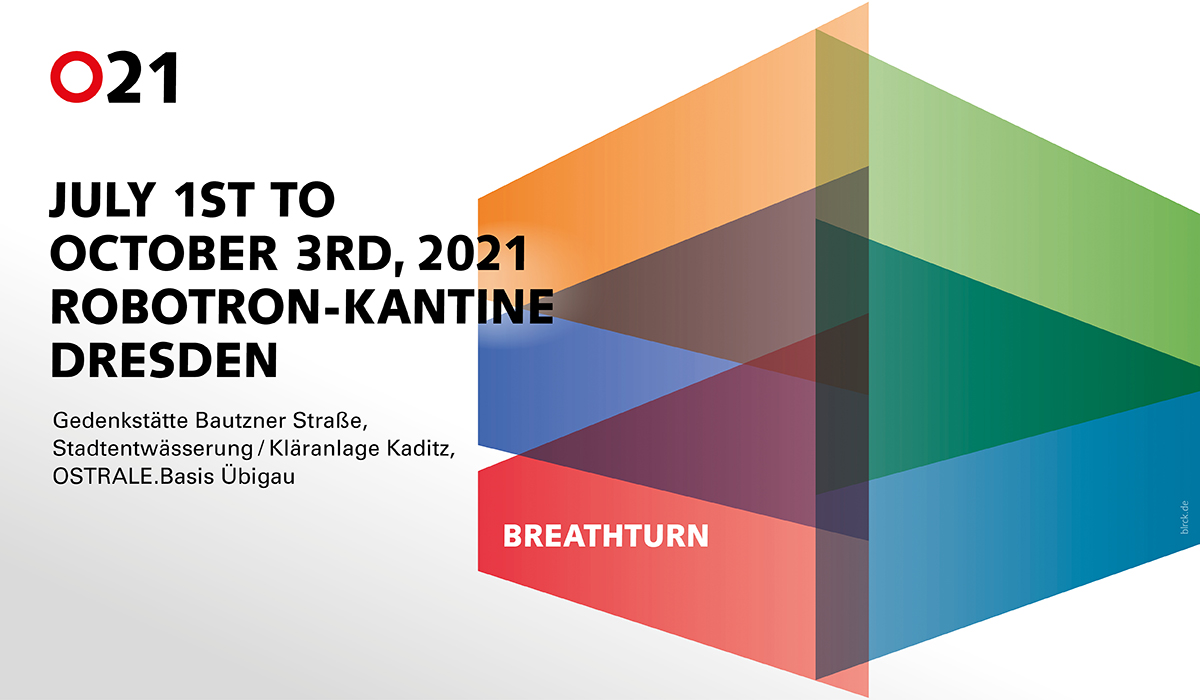
DRESDEN 2021 (DE)
OSTRALE Biennale O21, Breathturn
13. International Exhibition of Contemporary Arts
Dresden 01.07. – 03.10.2021
Robotron-Kantine
01.07. – 03.10.2021
Zinzendorfstraße 5, 01069 Dresden
Wed – Fri 10am to 6pm and 6pm to 7pm evening ticket
Sat – Sun 11am to 7pm and 7pm to 8pm evening ticket
Entrance fee: 15 EUR (reduced price: 10 EUR)
Timeslot-reservation obligatory
Reserve your ticket here
Gedenkstätte Bautzner Straße
14.07. – 03.10.2021
Bautzner Str. 112A, 01099 Dresden
Mon – Sun 10am to 6pm
Prices and tickets here
Stadtentwässerung / Kläranlage Kaditz
06.07. – 03.10.2021
Scharfenberger Str. 152, 01139 Dresden
Tuesdays, Thursdays, Saturdays at 10am, 1pm and 3pm
Visit through guided tours with registration
Book your guided tour here
OSTRALE.Basis Übigau
17.07. – 03.10.2021
Rethelstraße 45, 01139 Dresden
Tue – Sat 12am to 6pm
BREATHTURN
In the rivers north the future / I cast the net (Paul Celan)
Being human is not enough, and already too much. Sometimes we act like robots, but want to feel like animals. How can we breathe and rethink work and pleasure, art and industry, politics and poetics, when everything flows into each other, like streams into a river? Is the whole planet our home or just the square meters we occupy?
Between disorientation and reorientation, to find new directions and avoid dead ends, we need to breathe differently. We have to change our perspective and pay attention to those at the borders of our field of vision: the misfits, the oppressed, and the unknown, but also biospheres, buildings and social spaces. At the gate of a new, post-pandemic era, exhausted but hopeful, curious and ready for a change, the OSTRALE in 2021 explores the ways we coexist with our fellow humans, animals and our complex environment.
Looking at the environmental, social and economic dynamics of the last decade (or, to put it bluntly, "the end of the world as we know it"), it is increasingly clear that the imperative of continuous growth and development is no longer a sustainable vision for our future, if we want one at all.
But even though more and more individuals come to this realization, the greater systems that govern our world and our societies seem less willing to change their ways. Sometimes it feels as if we are caught in a current against which it is pointless to fight, but swimming upstream seems more important than ever as we do not have as much time as would normally be needed for such fundamental cultural shifts.
The role of art in this context is problematic: should it serve as a means of to develop sensibility and empathy for a deeper understanding of these questions? Or would this be a restriction of artistic freedom and an invitation to propaganda? Is art a luxury of the developed world that should be abolished first when we reduce our consumption and limit our material needs? Or is it, on the contrary, the most important tool to survive and maintain our hopes in an otherwise hopeless and frightening world?
The OSTRALE Biennale in Dresden is the third largest international exhibition of contemporary art in Germany, which took place every year from 2007 on during the summer months and was changed into a biennale in 2017. It is not a sales exhibition per se, which gives us the freedom to discuss socially relevant topics regardless of market developments.
As "venue pioneers", the OSTRALE opens up unused industrial and cultural brownfields. First the exhibitions have taken place at various venues of the former slaugtherhouse complex of Ostragehege in Dresden, as well as other similar post-industrial venues all over Europe. After leaving the Ostragehege area, the OSTRALE Biennale in 2019 took place at the Historical Tobacco Factory f6 in the Striesen district and at 5 other decentralised locations in Dresden. This last edition welcomed more than 30.000 visitors in just over two months, 9.000 of them being students from Dresden and all over Saxony.
For the OSTRALE Biennale O21, thanks to the generous support of the real estate company Gerchgroup AG, a unique chance has been given the organizers to present the exhibition for the first time in the very heart of Dresden in 2021. The building is a witness of the Eastern Modernism („Ostmodern") and an often overlooked part of the architectural and social history of the city of Dresden.
The Robotron Kantine is the former company restaurant and one of the last standing buildings of the already demolished Robotron computer factory complex, once a crown jewel of technological innovation, but also of architectural optimism, in Dresden and in the whole DDR in the 1960s and 1970s. However, after the closure of the factory, its fate has been somewhat troublesome. For a while, it has served as a venue for various cultural activities and also as a rehearsal room for the nearby Semperoper, but in the last few years it has been standing empty in an ever deteriorating state. The discussion about its possible reactivation gained more momentum during the preparation phase of Dresden's application for the title of European Capital of Culture for 2025, in frame of which several new concepts were developed for the building. Now, as the city of Dresden is no longer in competition for the title, the future of the Robotron Kantine remains uncertain. Opening it up through art can pave the way to revive it as a cultural venue.
The year 2021 will see the first important steps in this direction, as Dresden's two leading organisations for contemporary visual arts, the Kunsthaus Dresden and the OSTRALE – Centre for Contemporary Art are staging temporary events in and around the building. First, artists invited by the Kunsthaus Dresden will activate the facades and the outer areas of the Kantine with their international art project North East South West. Then during the summer, the Kantine will serve as the main venue of the OSTRALE Biennale O21, presenting artworks from around 160 artists from all over the world, selected by an international team of curators from Croatia, Lithuania and Hungary, with the leaders of OSTRALE accompanying the jury.
Another important venue of the OSTRALE Biennale O19 will be the Stadtentwässerung Dresden (the city's waste water facility), right in the vicinity of the OSTRALE Center in Dresden-Übigau. The fascinating sites of the facility will serve as an exciting backdrop to the exhibited artworks, bringing science, industry and visual arts into an unusual dialogue. With its long-time engagement in environmental and climate issues and its programs to engage and educate young generations about the responsible handling of wastewater and natural resources, Stadtentwässerung Dresden comes as a natural partner for OSTRALE's current program, which also deals with the questions of our relationships to rivers, water, sustainability, and the broader connections between society, environment and the arts.
This theme is also the focus of Flowing Connections, a cultural cooperation co-financed by the Creative Europe program of the European Union, that plays a vital role in the organisation of the OSTRALE Biennale O21, especially when it comes to the curatorial process, the preparation and the opening of the exhibition. It also enables us to take a selection of the artworks presented in Dresden to exhibitions in Budapest, Rijeka/Split/Zagreb (Croatia) and the European Capital of Culture Kaunas (Lithuania) in the year 2022. The exhibitions are accompanied by other activities such as an artist in residence programme, workshops and symposia on issues of digitalisation, sustainability, communication strategies and inclusion.
Since April 2020, the OSTRALE.basis in Übigau Dresden is our new headquarters and an important venue for the artistic residencies of the Biennale! Every year, OSTRALE welcomes artists from all over Europe in its artist apartment, where they can stay and do their artistic research. The OSTRALE.basis is not only the "backstage" of the Biennale, but is also meant to be a social space for the community of Übigau where we plan to host a cinema salon, literary readings, artistic workshops and eco-sustainable activities. The community is invited to help shape the cultural program and participate in this process of urban renewal to activate this district with a vibrant cultural life. At the moment, "The Future Project" is running in the garden of the OSTRALE.basis, a series of creative workshops with students from the Art University of Dresden and Wroclaw for the creation of a sustainable art garden together with the children of the local children's house Sonnenschein. The OSTRALE.basis also offers local artists a platform for exhibition and project development.
Another cooperation partner is the Bautzner Straße Memorial Museum. A tour of the only original Stasi prison in Saxony shows how the state's repressive apparatus tried to eliminate its political opponents. The exhibition and impressive archive materials in the former office of the Dresden Stasi chief reveal the everyday life of the security service. The density of these historical spaces, combined with interactive exhibitions and eyewitness accounts, is unique in Germany. The intervention of the OSTRALE Biennale O21 confronts the historical context of the location with international contemporary artworks and aims to establish a dialogue between the past, the present and the future as well.
BUDAPEST 2022 (HU)
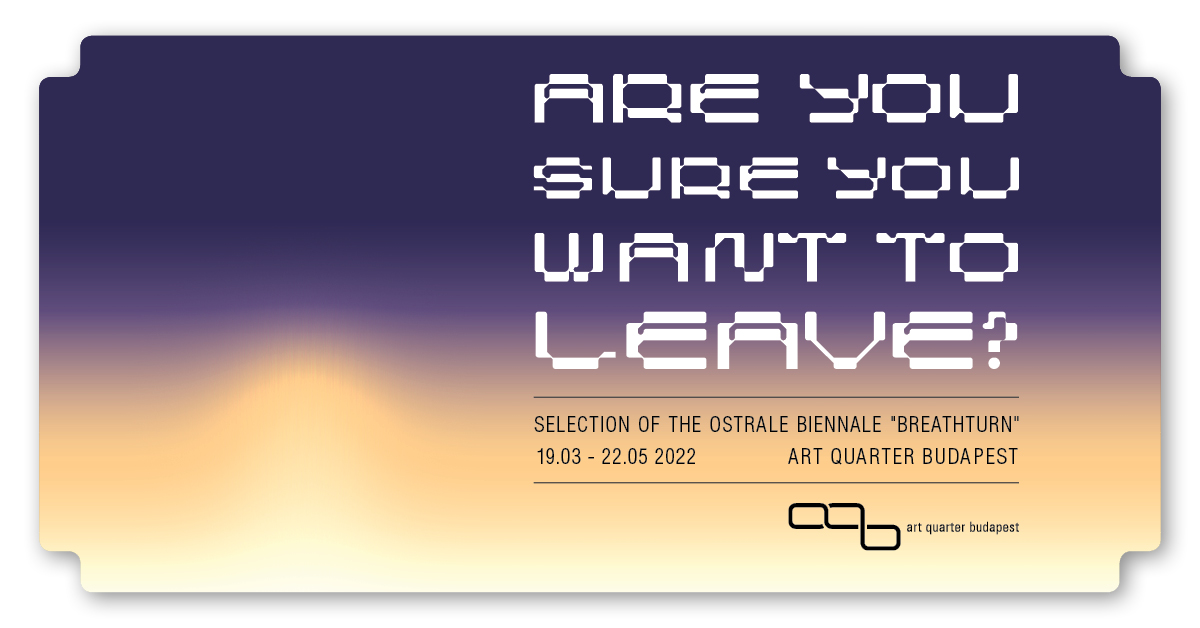
ARE YOU SURE YOU WANT TO LEAVE?
Selection from the OSTRALE Biennale O21 "Breathturn"A fresh selection from the material of the OSTRALE Biennale O21 contemporary art exhibition in Dresden will be presented from 19th of March till 22th of May in the exhibition spaces of art quarter budapest, ‘inhabiting’ the entire building complex of aqb: in addition to the larger and the smaller gallery space (aqb Project Space and aqb AiR Room), the large-scale spatial sound studio on the premises will be used as an occasional venue for screenings and installations, and the exhibition will also include two artist containers (works by Anna Fabricius and the Kolxoz collective), which took shape following last summer’s artist-in-residence programme in Dresden.
The latest edition of OSTRALE grew out of a call for proposals accompanied by an international curatorial collaboration, focusing on the multifaceted dilemma of degrowth in the context of visual art. This large-scale exhibition took place during the summer and autumn of 2021 with the participation of more than 130 exhibiting artists. Its unconventional main venue was the Robotron-Kantine, an emblematic building evocative of the GDR era, located almost in the baroque centre of the city, which was temporarily rehabilitated for the Biennale. The collective title of the exhibition eventually agreed on by the curators was Atemwende/Breathturn, which thematised the works of art loosely arranged in sections with its poetic and almost inescapable topical undertones. The Croatian, Lithuanian and Hungarian curatorial cooperation and the (East) German location gave rise to an exciting interplay of art scenes and positions. A contemporary art event that has the word ‘East’ in its name obviously bears geopolitical significance, and definitively reflects, beyond the dilemmas of the present, on the post-communist historical experience of the former Eastern bloc.
This cooperation was made possible in the framework of the Flowing Connections project (co-financed by the Creative Europe program of the European Union), which apart from the curatorial cooperation between the partners from the four countries, also included the Artist in Residence program in Dresden in 2021, and will continue during the autumn of 2022 as well, with an exhibition from the same material of the OSTRALE Biennale O21 in Lithuania, in the 2022 European Capital of Culture Kaunas, and a seminar on postindustrial cultural heritage in Split, Croatia.
The exhibition at aqb is entitled “Are you sure you want to leave?” We are curious: what happens after the symbolic and actual breathturn? Phrasing an undefined and perhaps unanswerable dilemma, articulating or, if you like, overcoming uncertainty, the new title creates a common ground for the works. It refers to emigration, to symbolic quitting. The exhibition also includes works by a number of artists making their debut in Hungary, telling local and regional, personal and general tales of loud or quiet conflicts, of animals and people, of power and values – usually with ironic morals. In a polyphony of voices and with gravity, the exhibition shows the poetic and quotidian nature of artistic activity, the heroisation of work, but also the satirical mockery of this very heroism, whether it is a characteristic of recent or current managerial capitalism.
When the exhibition received its title, paraphrasing that of Petra MRŠA’s video, what has since become terrifying reality – namely that the shocking events of war are now part of everyday life in Ukraine – still seemed to be a remote possibility. The selection of artists from 15 countries features two Ukrainians. Nikita Kadan’s Gazelka is a flag made out of a metal sheet from truck perforated by shrapnel in the Donbass region, and as such, it is an embodiment of the idea of the revolt of things. Larion Lozovoy’s video (The Machine and the Garden) uses landscape shots from a series of propaganda movies about Soviet collectivisation to expose the seemingly innocent relationship between nature and the heroes of the films.
Both as an art institution focusing on international dialogue and as a community, aqb strongly condemns military aggression and the invasion of Ukraine. We stand in solidarity with those suffering in the war.
Opening: 19.03.2022 Saturday 6 PM
Opening speech: Zsolt Miklósvölgyi, Editor-in-Chief of Artportal Magazine
On view: 20.03.2022 – 22.05.2022
Venue: art quarter budapest, Nagytétényi út 48-50., 1222 Budapest, Hungary
Curator: Krisztián Kukla
Curatorial team of the OSTRALE Biennale O21:
Nataša Bodrožić, Ivana Meštrov, Patricija Gilytė, Krisztián Kukla
Exhibiting artists:
Seçkin AYDIN, Viktor BRIM, János BRÜCKNER, Gaby BURCKHARDT, Daniel BURKHARDT, Nadja BUTTERNDORF, Mauro CUPPONE, Abdoul-Ganiou DERMANI, Tibor DIETERS, Alexei DMITRIEV, Anna FABRICIUS, Zsolt FERENCZY, Michael HEINDL, Yuki JUNGESBLUT, Nikita KADAN, Neža KNEZ, KOLXOZ, Glorija LIZDE, Larion LOZOVOY, Dean MAASSEN, studio ASYNCHROME, Petra MRŠA, Sali MULLER, Csaba NEMES, Andrea PALÁSTI, Predrag PRAVIĆ, Ghenadie POPESCU, Marko RODICS, Farid RASULOV, Sandra ROSENSTIEL, Goran ŠKOFIĆ, Lana STOJIĆEVIĆ, Kamen STOYANOV, Attila SZABÓ, Hajnal SZOLGA, József SZOLNOKI, Stipan TADIĆ, Philipp VALENTA, Arturas VALIAUGA, Vangjush VELLAHU, Xueying WANG, Yinglin ZHOU
Video-installation, screenings: Ana HUŠMAN, Endre KORONCZI, Kamen STOYANOV
Sound installation: Sarvenaz MOSTOFEY
Performance: Marko Gutić MIŽIMAKOV
Partners:
OSTRALE – Centre for Contemporary Art (Germany), Kaunas 2022 (Lithuania), slobodne veze (Croatia)
Sponsors:
Budapest Brand, Goethe Institut Budapest, Nemzeti Kulturális Alap, Österreichisches Kulturforum Budapest. The exhibition is part of the Flowing Connections cooperation project, co-funded by the Creative Europe program of the European Union.
Opening hours:
Monday: closed | Tuesday: 14:00 - 18:00 | Wednesday: 14:00 - 18:00 | Thursday: 14:00 - 20:00
Friday: 14:00 - 18:00 | Saturday: 12:00 - 16:00 | Sunday: closed | The exhibition is free of charge.
SPLIT 2022 (HR)
KAUNAS 2022 (LT)
Out of OSTRALE O22, Breathurn exhibition in Kaunas
Time: 05.10. – 13.11.2022Location: Kaunas Central post office, Laisvės al. 102, Kaunas, Lithuania
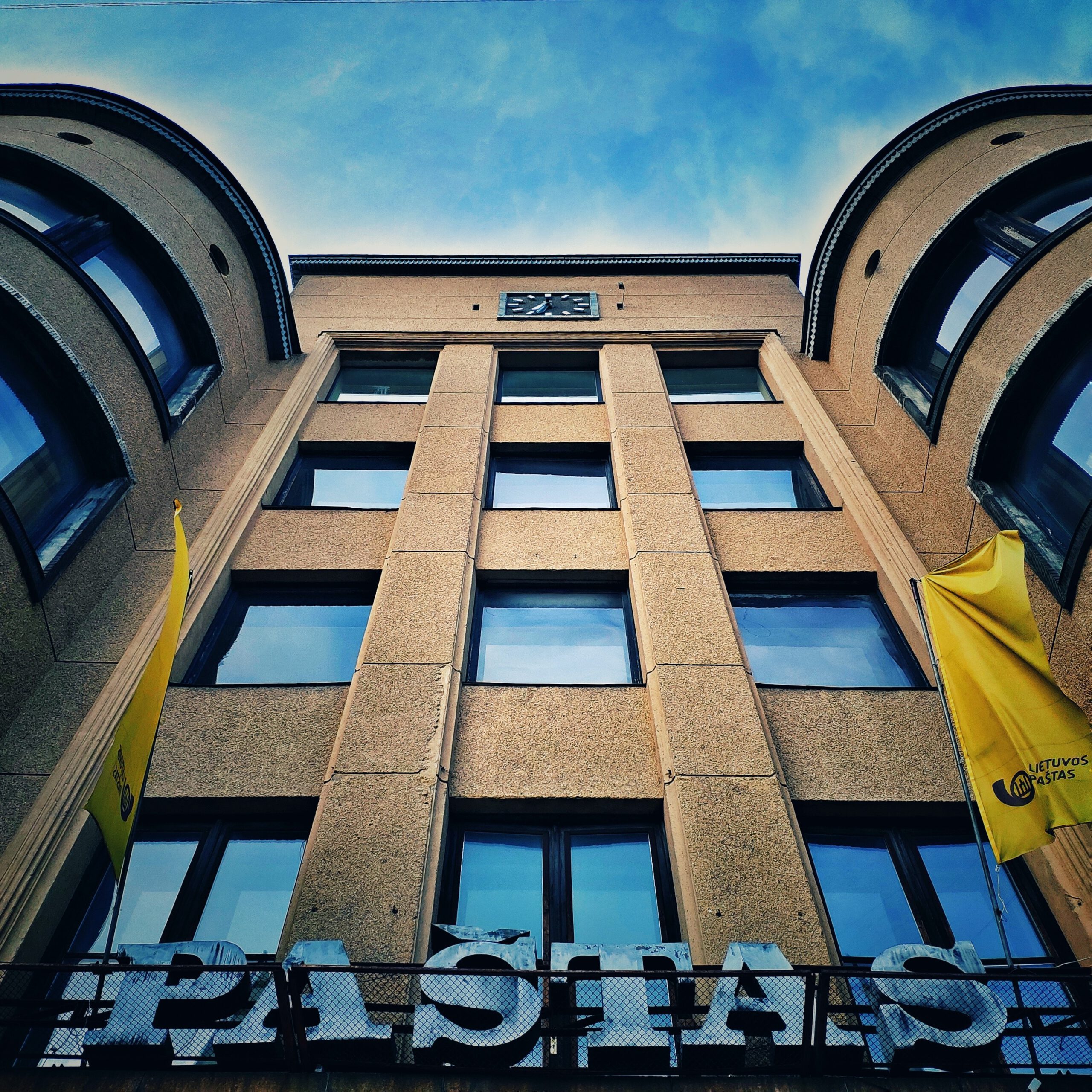
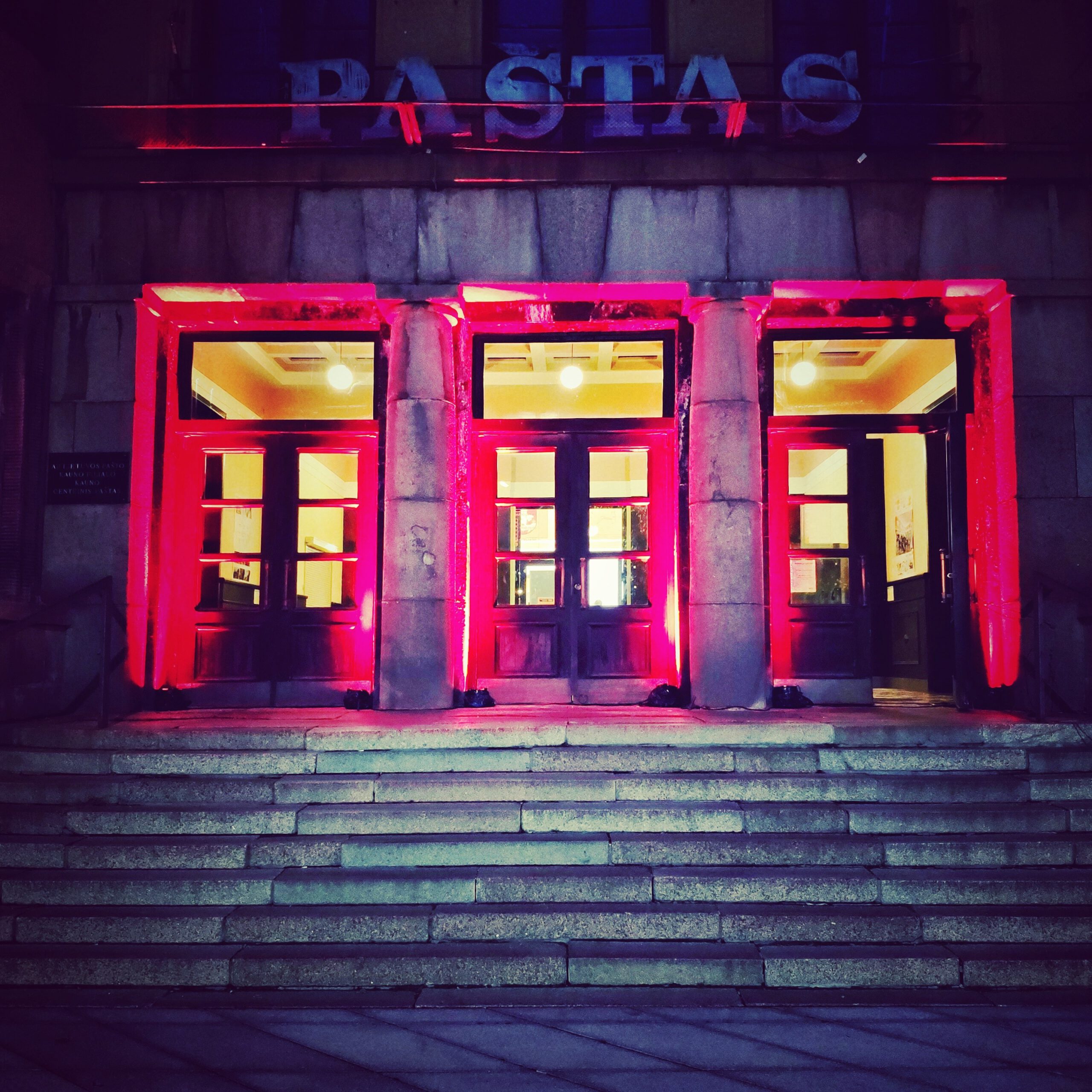
Flowing Connections Artist-in-Residence containers exhibition
Time: 01.06. – 06.10.2022Location: Zapyškis, Kaunas Disctrict, Lithuania
The Flowing Connections (FLOC) exhibition and workshop in Kaunas will be one of the highlights of the year 2022 – the year when Kaunas will be holding the title of the European Capital of Culture and delivering a programme titled Contemporary Capital and consisting of more than 4000 events and activities. The FLOC Artists-in-Residence programme will be a part of a wider partnership between OSTRALE Dresden and Kaunas 2022, which will also encompass a satellite exhibition of the OSTRALE Biennale in Kaunas.
The selected venue for the exhibition is Kaunas Central Post office - one of 44 objects of Modernist interwar architecture in Kaunas awarded with European Heritage Label in 2015 by European Commission. It is a perfect match to OSTRALE Biennale as venue pioneers of exhibiting artworks at unused places. The location is expected to help disclose the concept of the OSTRALE Biennale through the selected artworks. The Artist-in-Residence project of four shipping containers with artworks installed by artists on site while in Dresden will be open for visitors from 1st July to 6th of October 2022 in Zapyškis, Kaunas District, Lithuania.
The exhibition is envisioned and will be delivered by the NGO Ars Futuri in cooperation with Kaunas 2022 and the OSTRALE - Centre for Contemporary Art Dresden. Aiming to ensure professional insight in the development of the FLOC exhibitions and the Artists-in-Residence programme, Kaunas 2022 has invited for cooperation a Germany-based cultural professional, internationally active visual artist and experienced curator Patricija Gilytė. Patricija’s works include performative sculpture, video art and installation. She is a member of the curatorial team of the OSTRALE Biennale O21, member of the German Artists' Association and the Lithuanian Artists' Association.
WORKSHOPS
DIGITAL CULTURAL MANAGEMENT
Hosting partner: OSTRALE – Centre for Contemporary Art
Invited expert: Sven Dämmig (independent software developer)
All cultural institutions in the art exhibition business are using digital tools one way or another to handle to organisation, communication, administration and logistics of their exhibitions: shared documents, servers, clouds, etc. However, these tools are quite often not exactly designed for the very special needs of these kinds of institutions. In the last few years, OSTRALE has developed its own online databank system to handle all these different kinds of tasks in an integrated and efficient way. From the start of the FLOC project, the delegated curators have been introduced to the OSTRALE databank, through which the whole process of applications, information management, jury decisions, communication with the artists, and the organization of the logistics and the positioning of the artworks is implemented. In the frame of this workshop, held in an online webinar form due to Covid restrictions, the developer of the OSTRALE databank, Sven Dämmig gave a more detailed insight to the partners in the functioning and technical background of the databank, its main features and possible development directions, as well as exploring the possibility of transforming this made-to-measure software system into something that could be later on offered to other cultural institutions as a product to help their digital cultural management work easier and much more efficient.

Illustration: Ostrale

Illustration: Ostrale
INCLUSIVITY MEASURES AT THE OSTRALE EXHIBITIONS
Hosting partner: OSTRALE – Centre for Contemporary Art
Invited expert: Jan Blüher (VisorApps)
Making their art exhibitions as accessible for an as wide audience as possible has always been a core ambition of OSTRALE’s work. Throughout the years, this not only meant reaching out to specialized and often underprivileged groups (children, students, the elderly, young people with migrational backgrounds and refugees as well) with special programs and offers, but also in inclusivity measures towards people with physical disabilities. This included the wheelchair accessibility of the exhibition venues as well as the development of the OSTRALE AllSense mobile application, downloadable on smartphones but also available for use through devices that can be borrowed on site. This application helps blind people and people with seeing disabilities to navigate through the OSTRALE exhibitions and also provides audio material and sign-language videos (produced by the VIGEVO network of German sign language interpreters) with the description of a selection of artworks shown at the exhibitions. In the frame of the workshop, the participants met Dr. Jan Blüher, the developer of the AllSense app, who, being blind himself, has direct knowledge and experience on how art exhibitions can be perceived by people with seeing disabilities. He demonstrated how the system works and discussed further strategies and practices of the use of the software inside and outside the OSTRALE framework. Although due to the extremely short timeframe of the building of the OSTRALE Biennale O21, this system was not integrated into the Dresden exhibition in 2021, the possibilities to introduce this to the further FLOC exhibitions abroad in Budapest, Split and Kaunas are being explored by the project team.
AUDIENCE DEVELOPMENT
COMING SOON
POSTINDUSTRIAL SPACES
COMING SOON
ACCESSIBILITY WORKSHOP IN KAUNAS
Time and place: Kaunas (LT), 2022 October
Hosting partner: Kaunas 2022 / Ars Futuri
Invited expert: Arka Community
The FLOC contemporary art exhibition will be brought to Kaunas in 2022. During the exhibition, Kaunas 2022, together with experts of related fields, will deliver an educational programme, part of which will be a workshop on the topic of accessibility of cu lture for people with disabilities.
The workshop, performed in partnership with NGO “Ars Futuri” aiming for dialog and change towards accessible art and culture for all.
One of the recent results of this programme lately has been the “Culture for All” - a set of guidelines, prepared by Kaunas 2022 together with the design agency “Critical” and published online which suggests how culture organisers can improve the accessibility of their cultural services: https://kaunas2022.eu/prieinamumo-gidas/ and https://kaunas2022.eu/en/2019/10/15/culture-accessibility-guide-for-a-more-open-comfortable-and-friendlier-city-has-been-introduced/.
The planned workshop will present to the culture professionals the topic of accessibility for people with intellectual d isabilities, inviting to learn about the differences in the way visitors and participants are experiencing cultural activities and events and ways in which culture professionals can improve the accessibility of the cultural content produced by them
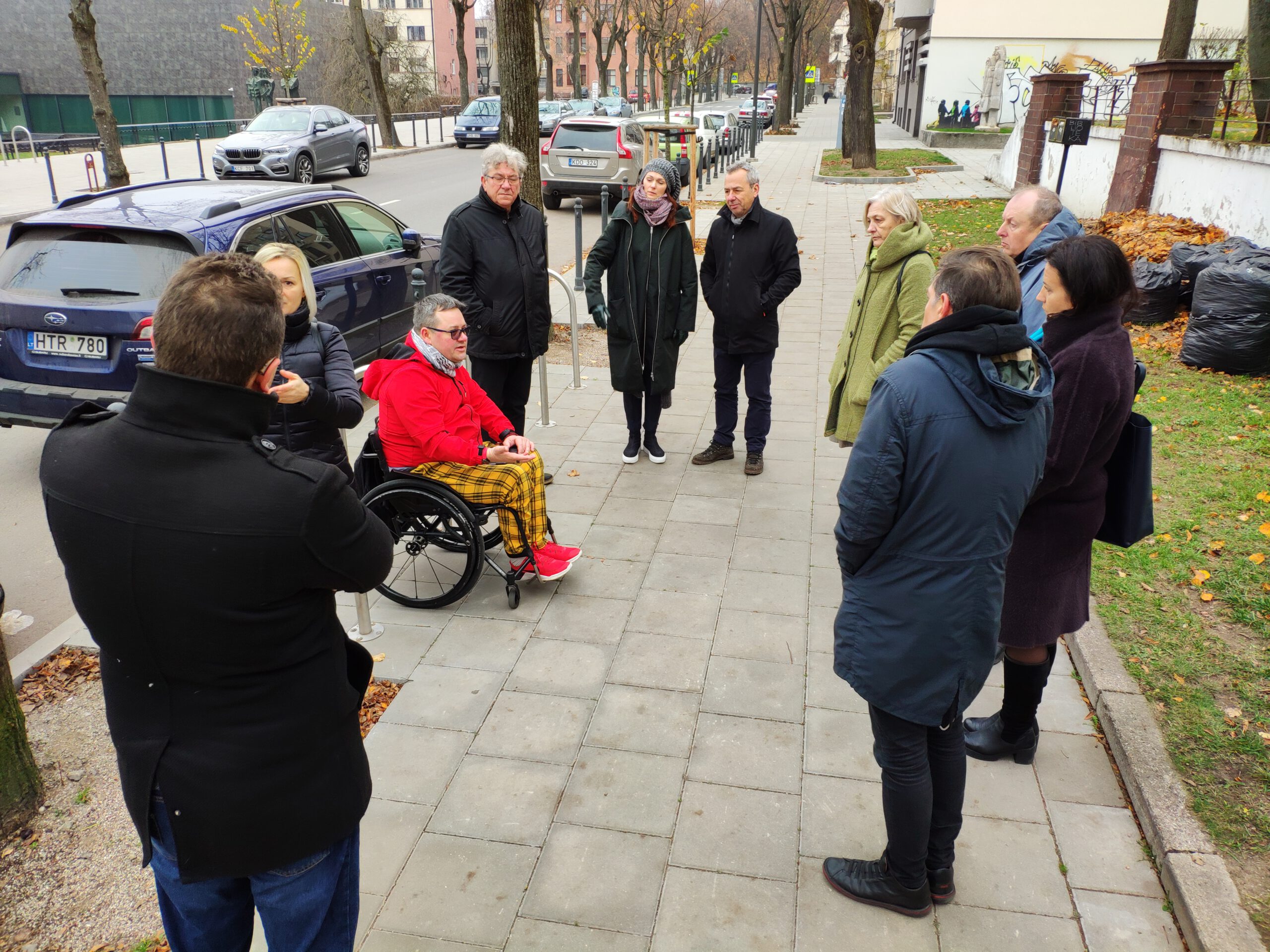
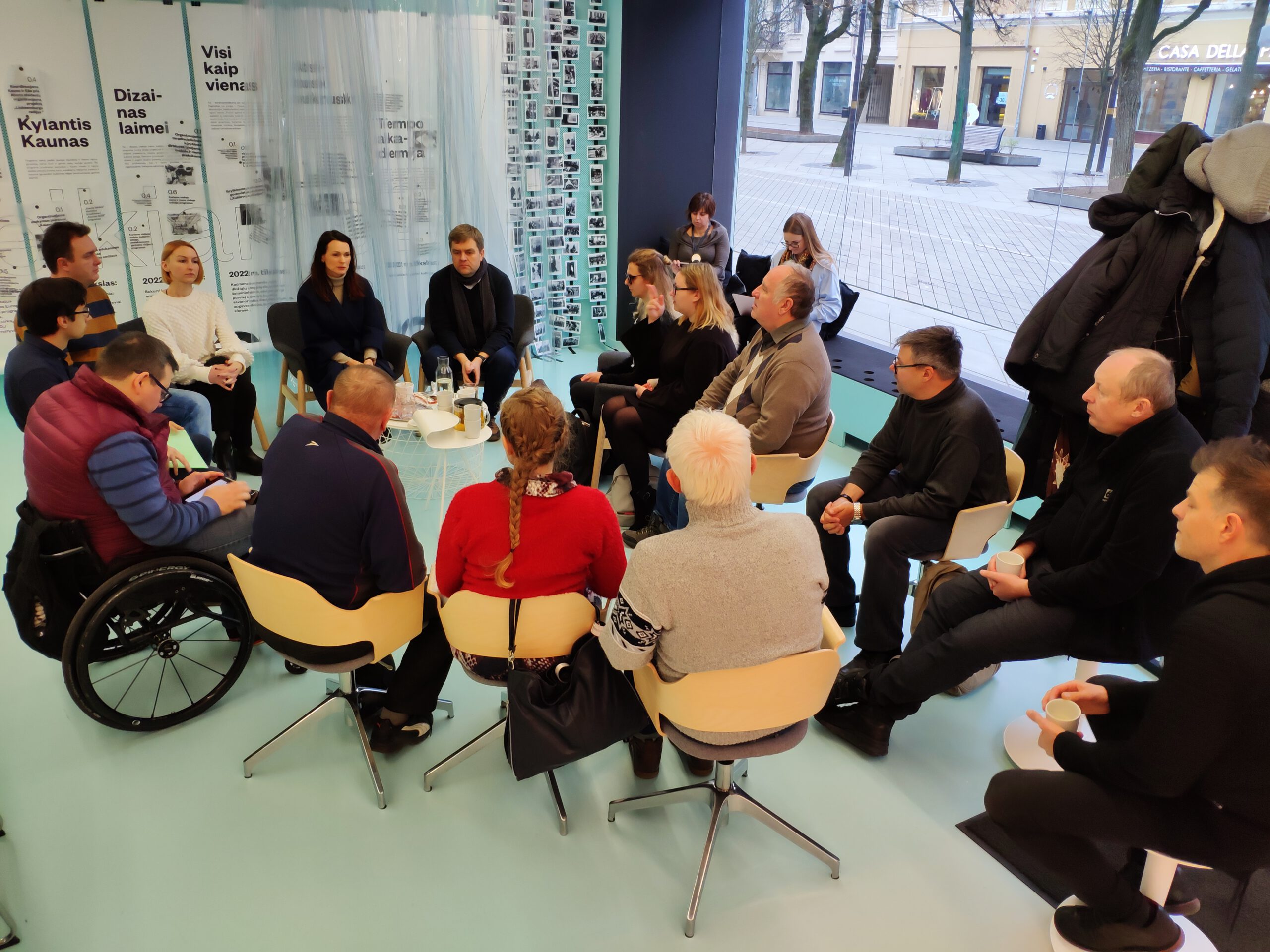
(Photo © GEDIMINAS BANAITIS)

